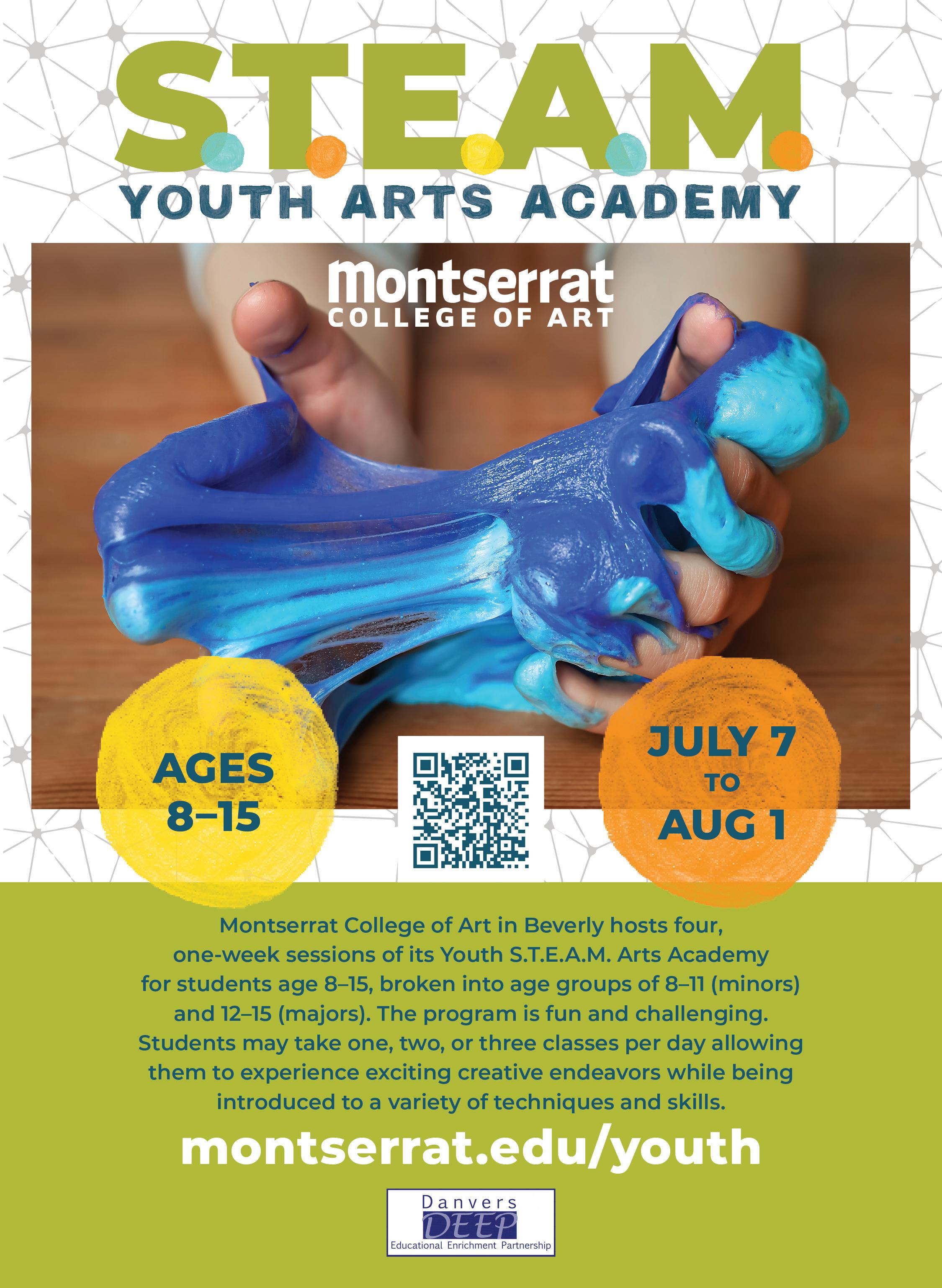February 2025


February 2025

Which Type of Camp Would Best Suit Your Child?
Sending Teens to Summer Camp
Is Your Child Ready for Overnight Camp?
STARTING EARLY With Babies to Support Language & Literacy Skills
FOLLOW THE LEADER: 9 Ways to Instill Leadership Qualities in Kids

Boston Ballet School offers a variety of summer programs that provide a platform for students to elevate their knowledge, refine technique, and explore new dance styles.
Our expert faculty work with students ages 3–17* to create a supportive and enriching environment, where they can first be introduced to ballet, or work to master their training.
Register today to secure your place!
bostonballet.org/bbs-summer

Pediatric
Wesley Barton, DMD
Ronen Krausz, DDS
Bahar Houshmand, DDS
Ava Ghassemi, DMD
Mahdieh Beheshti, DMD

Dentist
Orthodontics
Roger Taylor, DMD
Shahrzad Khorashadi, DMD


Orthodontist

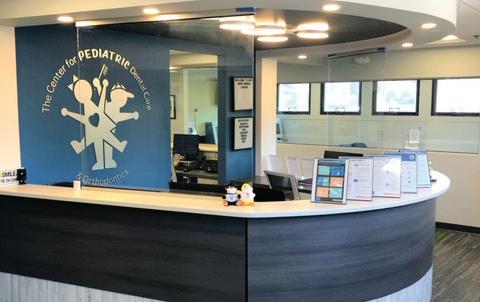

Monthly through June
Receive camp information and learn about more than 75 day and overnight camps as well as summer programs for all ages and interests.
Click here to register and receive access to regularly updated online camp expo materials

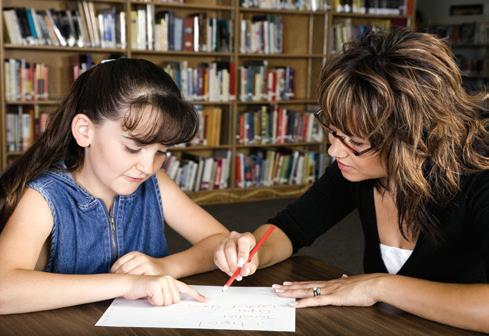

ASSOCIATE
ADVERTISING
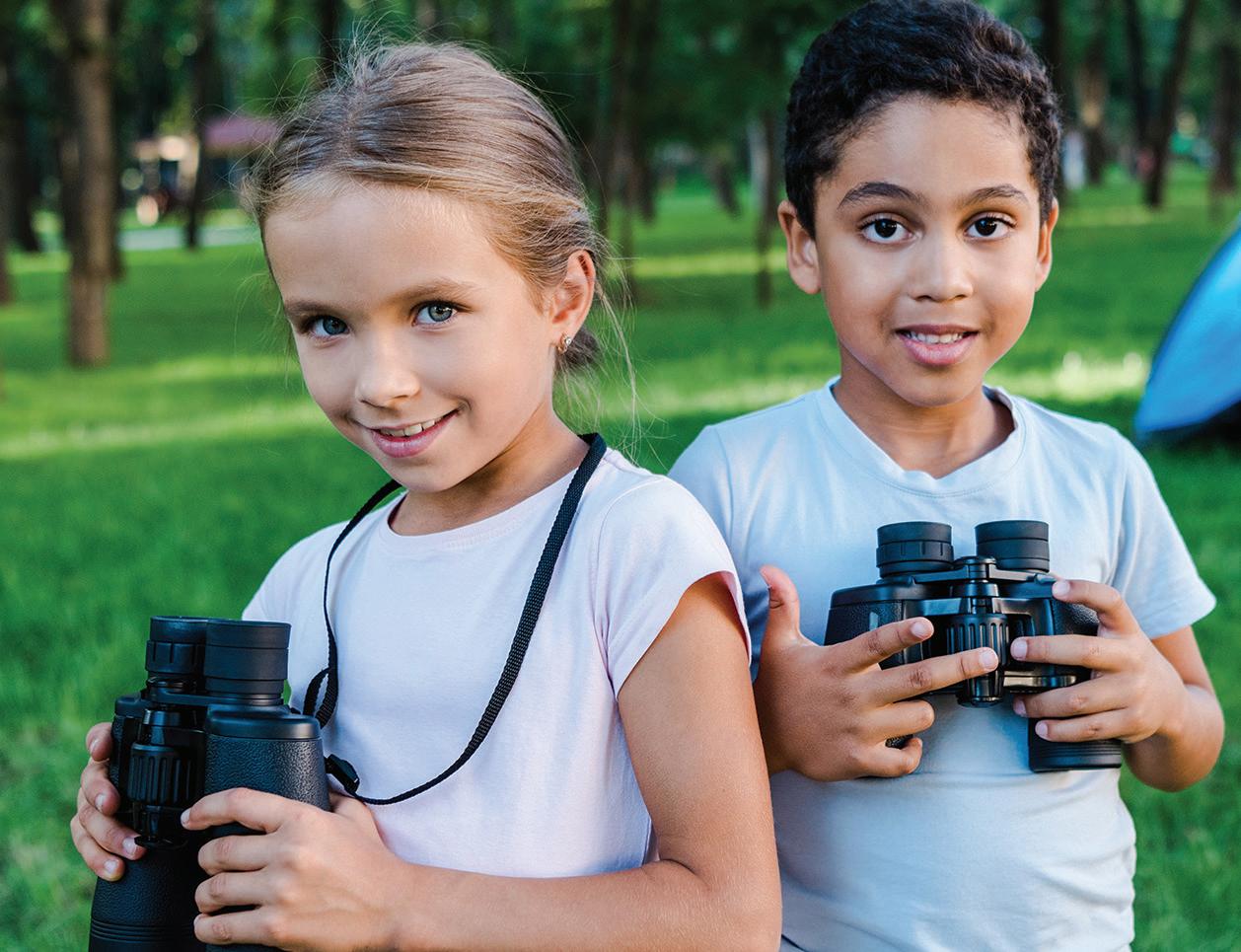
Don’t miss the Boston Parents 2025 Virtual Camp & Summer Expo starting on Jan. 26. This year we are doing a virtual program for camps that can be customized so you receive the information you want. Please register to receive your customized package of camp information: https://bostonparentspaper. com/summer-camp-expo.html
Noah and Olivia topped the list of the most popular baby names, with both names holding the top spot 10 2024, according to Babycenter.com. One new name that appears on the top ten boys list is Asher, bumping off Luca. On the girls top ten list Ellie makes a debut bumping off Evelyn. Both lists had very little movement in the top ten.
The 2024/25 edition of The Greater Boston Private School Guide provides information on how to help parents find the best private school for their children. This guide has information on prioritizing the most critical factors for your family, determining what type of school to consider, navigating admissions tours, shadow days, interviews, needed exams, tuition assistance, and writing an excellent essay. Use the month-by-month calendar to keep your family on the admissions track to getting accepted to the school of your choice. Available in print and online at www. BostonParentsPaper.com – just click on “Our Magazines” tab.
TOP BOYS NAMES OF 2024 1. Noah
Liam
Oliver
Elijah
Mateo
Lucas
Levi
Ezra
Asher
Leo
TOP GIRLS NAMES OF 2024 1. Olivia 2. Amelia 3. Emma
Sophia
Charlotte 6. Isobella 7. Ava 8. Mia 9. Ellie 10. Luna



What better way to keep track of all the preschool and private school admission events than this handy tool? With over 50 entities participating, check out the Online Open House & Admissions Calendar on www. BostonParentsPaper.com. Look for the School Open Houses button on the main header bar and tap. Don’t forget to tell them you saw their event on www. BostonParentsPaper.com


FOR NEARLY 70 YEARS, MAY INSTITUTE HAS PROVIDED EXCEPTIONAL CARE TO AUTISTIC CHILDREN AND THOSE WITH OTHER SPECIAL NEEDS. OUR SER VICES ARE B ASED ON APPLIED BEH AVIOR AN A L YSIS (AB A):
Special edu cation schools for autism and developmental disabilities
Center-based services for to ddlers and you ng children
Early intervention servi ce s
Home-based services
Supportive Technology services

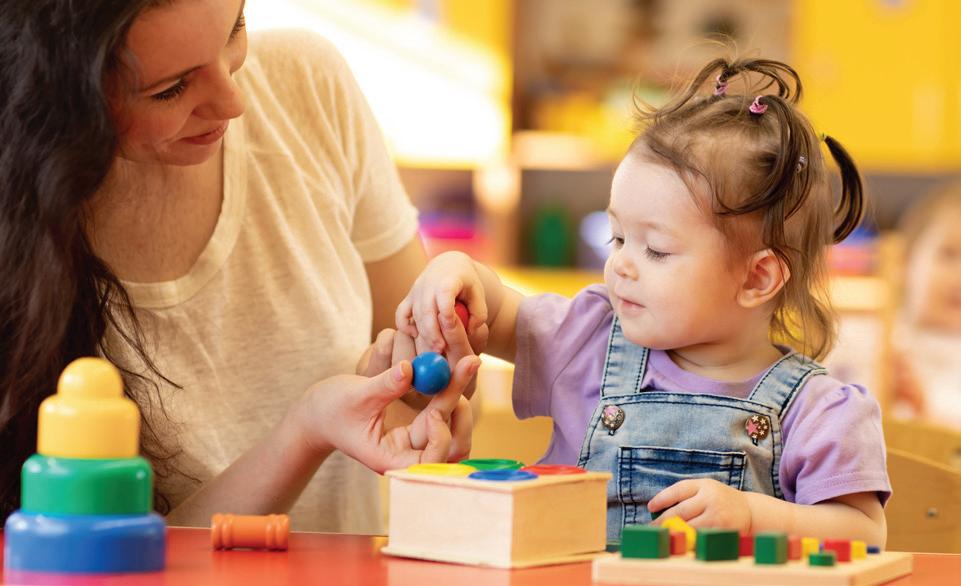
• Electric space heaters are a leading cause of fires. They should be placed on flat, noncombustible, non-carpeted surfaces and at least three feet from anything flammable. Never leave them unattended or use them where children play or sleep.
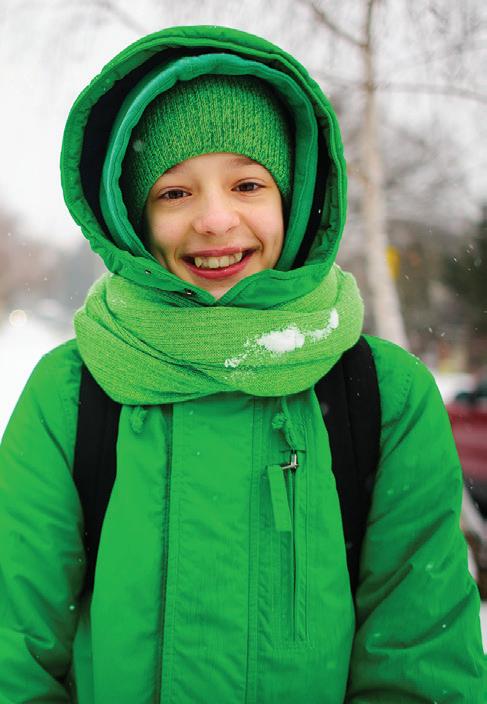
• Avoid hypothermia – an abnormally low body temperature. Symptoms include shivering, slurred speech, lethargy, pale and cold skin, confusion and slowed breathing. In infants, symptoms include bright red and cold skin and lethargy. Call 911 immediately if you notice these symptoms and attempt to warm the child by removing wet clothing and replacing it with warm clothing on the trunk, groin, neck and head. To avoid shock, don’t place the child in warm water or apply direct heat.
• Make sure sledding hills are free of trees and fences, and that they are far from busy roads, not too crowded, well-lit, well-covered in snow and have a flat runoff.
• Check sleds to make sure there are no sharp edges or cracks. Make sure children can steer them; avoid using snow disks and tubes.
• Wear a multi-sport or winter helmet for all winter sports.
• Children under age 16 should never operate a snowmobile, and kids under age 5 should never ride a snowmobile, even with an adult operating it.
Top baby naming trends for 2024 focus on non-binary names and softer names for boys.
Geographical names (London, Cairo, Cali, Sydney)except for Milan, up 223 spots are losing favor. They are replaced with nicknames, such as Josie, Ellie, Theo, and Leo, instead of the more formal versions of these names. Three-letter names are jumping up the list. On the playground, you will hear more names such as Teo, Koa, Jay, Kai, Lia, Tia, and Joy in the coming years. Names from Taylor Swift’s songs, Bettie, Marjorie, and Ivy, became popular after The Era’s Tour. Other Hollywoodinfluenced names from popular characters, Wednesday & Jenna (Wednesday Addams), Daisy (Daisy Jones & the Fifth) and Ronald (Jury Duty), are more popular. Hopefully, the name 6:30 (Lessons in Chemistry) will only go to the dogs.

According to National Park Service Director Chuck Sams, “The entrance fee-free days to encourage people to discover the beauty, history, and inspiration awaiting them in the more than 400 national parks throughout the country.” Only about 100 of the 400+ national parks have an entrance fee, with costs ranging from $5 to $35+. Detailed information about what to see and do in each park is available on NPS.gov or the NPS app. It’s essential for people to know before they go what is open and available, especially if they are staying overnight. Fee-free days apply only to entrance fees and do not cover amenity or user fees for camping, boat launches, transportation, special tours or other activities. ,

The annual $80 America the Beautiful National Parks and Federal Recreation Lands Pass allows the pass holder and companions accompanying them unlimited access to over 2,000 federal recreation areas, including all national parks. There are also free and discounted passes available for currently serving members of the U.S. military and their dependents, military veterans, Gold Star Families, fourth-grade students, disabled citizens, and seniors.
Free Entrance Days for 2025
January 20: Martin Luther King Jr. Day
April 19: First day of National Park Week
June 19: Juneteenth National Independence Day
August 4: Anniversary of Great American Outdoor Act
September 27: National Public Lands Day
November 11: Veterans Day


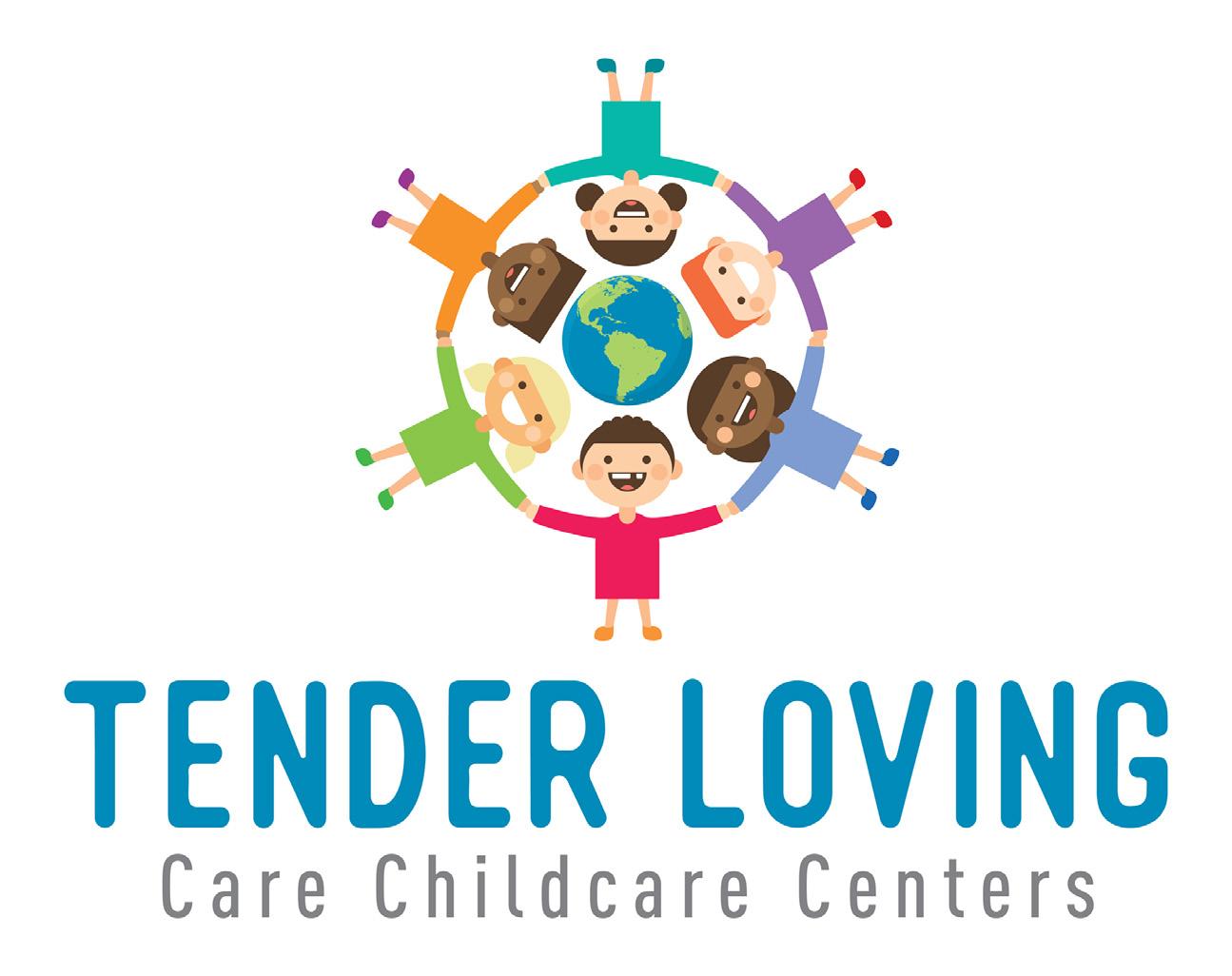


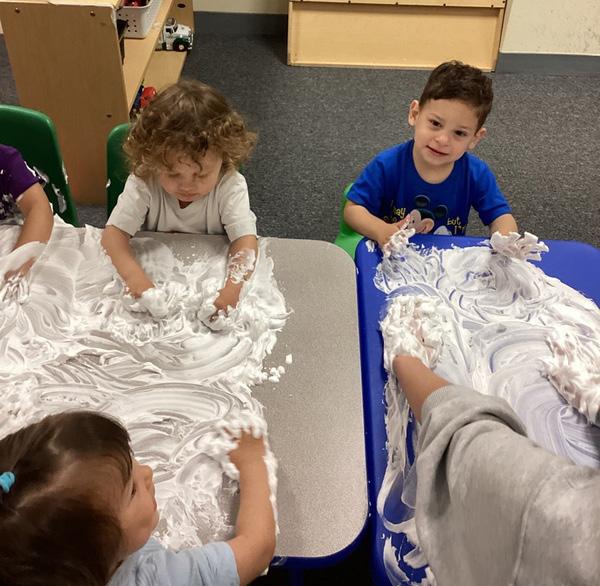

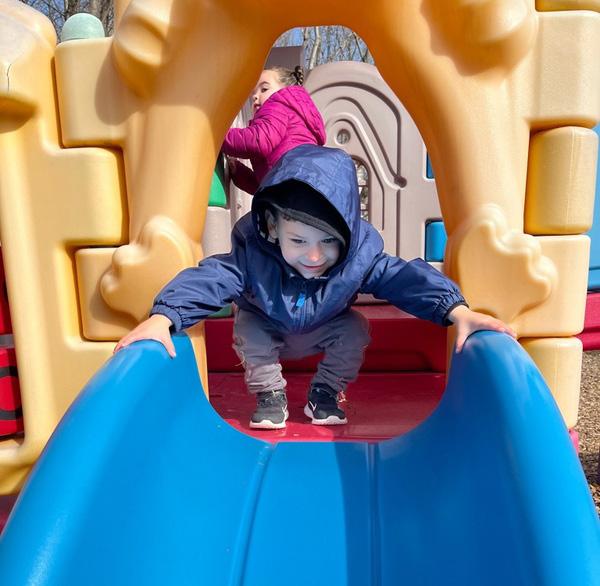
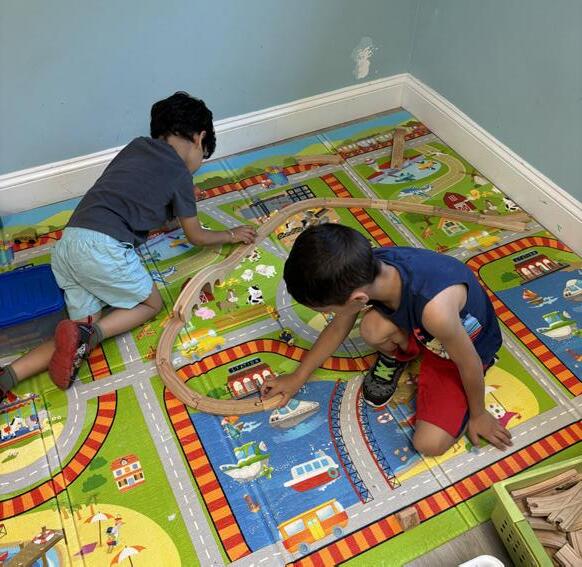



The weather outside may be frightful, but Boston’s indoor and outdoor winter-friendly activities are oh, so delightful. The city and surrounding areas offer many recreational options to keep families moving throughout the chilliest and most gluttonous, season.
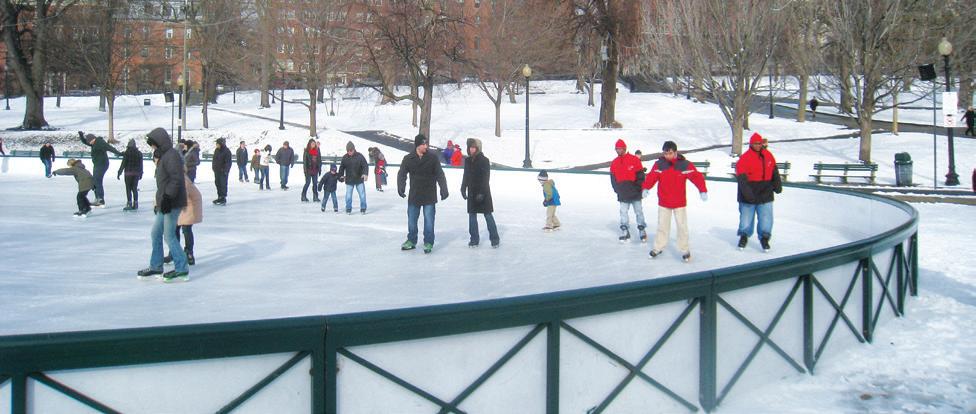
Channel your inner Michelle Kwan (or simply hang on to a loved one and inch around the rink) at Boston Common Frog Pond, where families can ice skate to their heart’s content. Breathe in the crispness of the season while skating around the open-air rink. Bring your skates – you can even have them sharpened for $8 a pair – or rent them at the pond. Visit the Frog Pond Café, where you can grab a grilled cheese, hot dog, or other kid-favorite foods and those oh-so-necessary warm drinks like coffee and hot cocoa. If a member of your party isn’t in the skating mood, free WiFi is also available at the café.
Boston Common, Boston, 617-635-2120; www. bostonfrogpond.com.
The Butterfly Place is an indoor garden filled with hundreds of freely-flying butterflies from around the world. See caterpillars, chrysalids, and cocoons up close as you walk around the winding pathway. Open Valentine’s Day - Columbus Day.
120 Tyngsboro Road, Westford, 978-3920955; www.butterflyplace-ma.

You don’t need scuba gear to see, touch, and learn about the wonderful creatures that live in our seas. Just enter Boston’s finest aquarium for an underwater adventure the entire family will love! Central Wharf, Boston, 617-973-5200; www.neaq.org.
DISCOVERY MUSEUM
Kids are capable of incredible things. The Discovery Museum futures this ability and supports healthy development. Visit the indoor STEAM-rich environment; if it’s not too cold, find more activities outside-reservations are required. No walk-ins. 177 Main Street (Route 27), Acton; 978-264-4200; www.discoveryacton.org
Snowtubing is the perfect activity for all levels, and with up to 12 lanes, 2 lifts, and over 200 tubes, you’re guaranteed to have a great time! They provide everything for you, including the snowtubes and the fun! ALL PARTICIPANTS MUST BE AT LEAST 6 YEARS OLD AND 42” IN HEIGHT TO TUBE.
1000 Main Street, Shrewsbury;508-842-6346; www.skyward.com.
WESTON
No matter how excellent your golf game is, the sport simply doesn’t work during the winter in Massachusetts, so the Leo J. Martin Golf Course turns its course into a cross-country ski and snowshoe trail for the colder months. The center is beginner-friendly, so kids and adults can have fun, regardless of their skill level. Weston Ski Track features one of New England’s largest cross-country ski snowmaking systemsif Mother Nature doesn’t cooperate. Ski lessons are available at a variety of skill levels for adults, as well as classes for children starting at 4 years old. 190 Park Road, Weston; 781891-6575; www.skiboston.com.
SKY
What could get the wiggles out better than a high-energy play area like Sky Zone? This indoor trampoline park has walled “play courts” perfect for your little jumping bean. Age-specific sessions are available (like Toddler Time for the little guys) to ensure everyone is jumping as safely as possible. Their SkyRobics is a challenging and effective workout for adults (no postholiday guilt here!).
69 Norman Street, Everett; 617-387-1000; www.skyzone. com/everett
100 Independence Way, Danvers; 978-252-3000; www.skyzone.com/danvers 101 Kingston Collection Way;
781-514-7595; www.skyzone. com/kingston
BOSTON CHILDREN’S MUSEUM
Winter is no time to stop playing. The Museum is filled with things for your family to enjoy, including three floors of exhibits, everyday programs, a unique Snowmazing Polar Playground, and more. Skate with your socks, create in the STEAM and Art Labs, climb to the top of our 3 story climber, and enjoy our iconic PlaySpace exhibit for our youngest explorers Check the calendar to learn more about daily activities. 308 Congress Street, Boston; 617-426-6500; www. bostonchildrensmuseum.org.
Put on your game face and head to Boston Bowl, where they have 30 Tenpin and 14 Candlepin lanes so you and the family can bowl to your heart’s content. Open around the clock, each lane can add bumpers if you’re playing with the smaller set who are just learning the ropes (or you simply want to keep your scores extra high!). Ditch the Wii Bowling and get out there and experience the real thing. Billiards is also an option if bowling isn’t your thing.
820 Morrissey Boulevard, Boston; 617-825-3800; www.bostonbowl.com.
58 Rockland Street, Hanover; 781-826-5263; www. bostonbowlhanover.com.








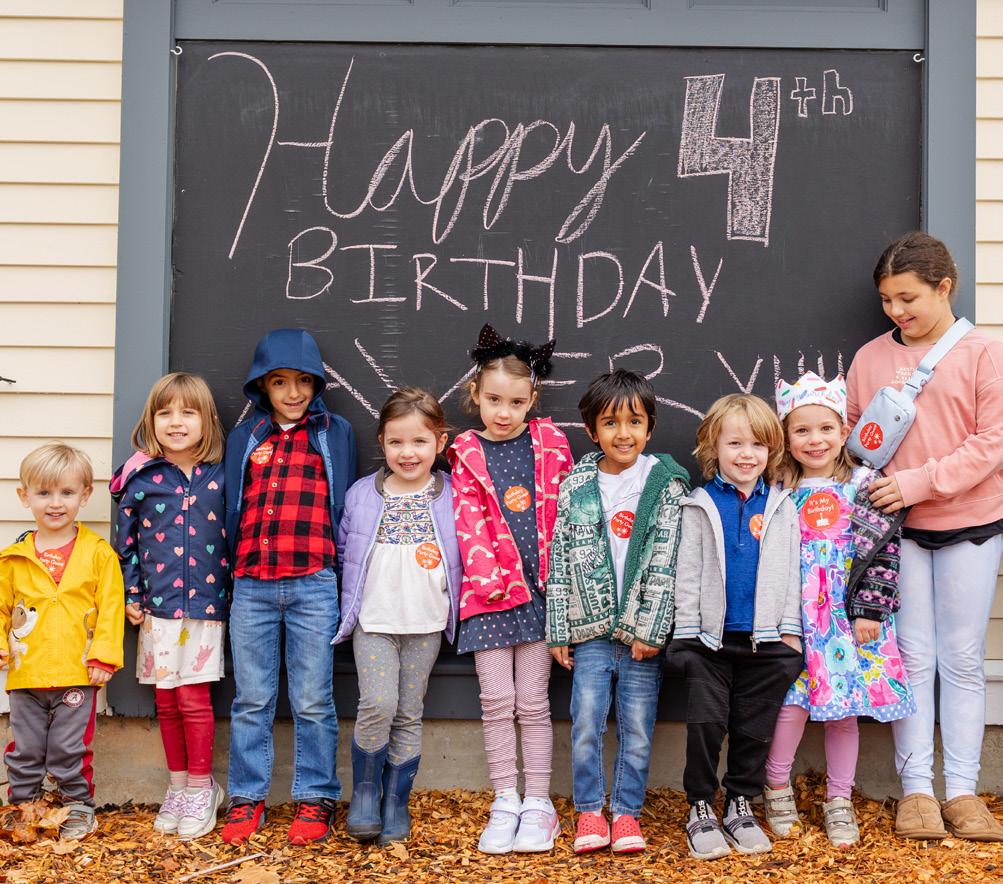







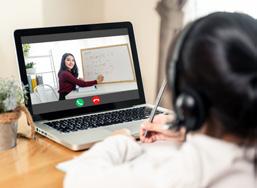




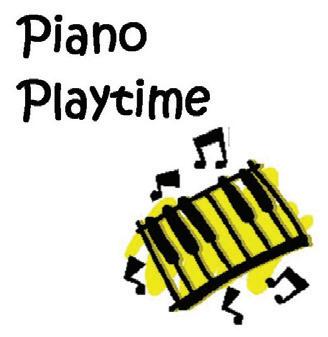
Frederick M. Misilo, Jr., Esq fmisilo@fletchertilton com
Anne E. Grenier, Esq. agrenier@fletchertilton.co Dani N. Ruran , Esq. druran@fletchertilton
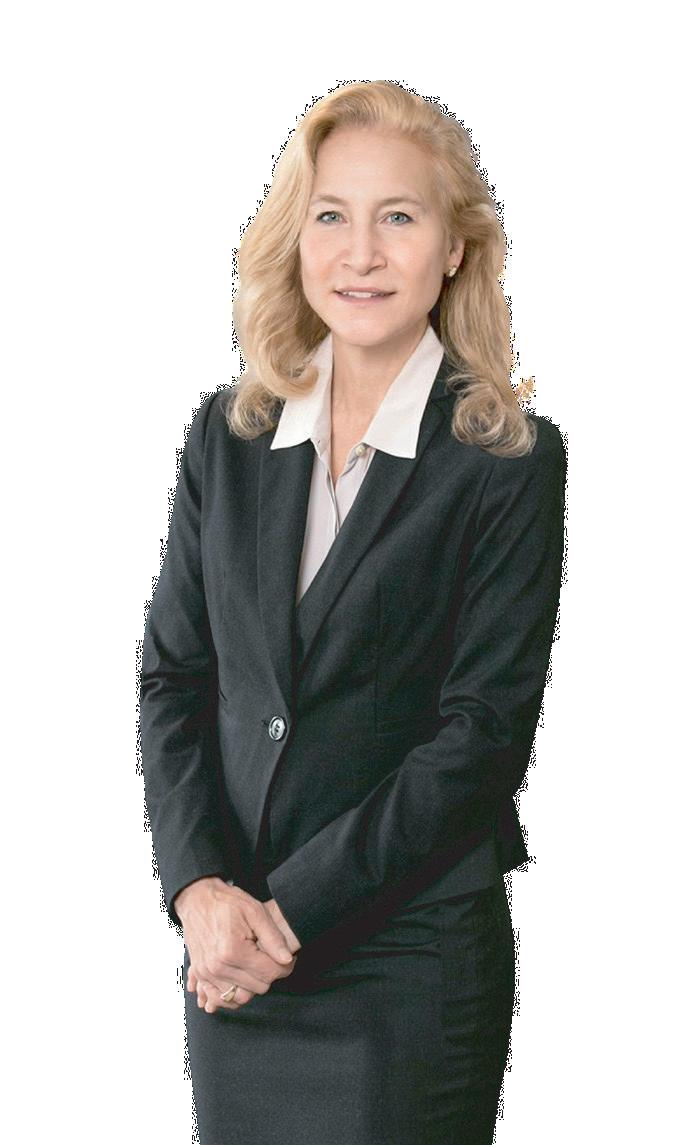




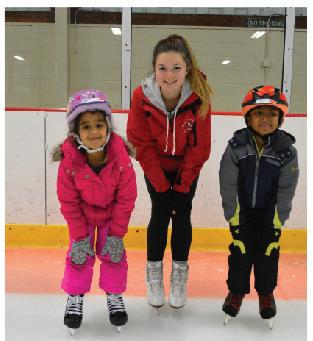
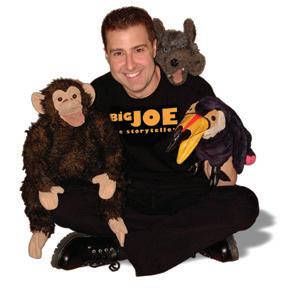







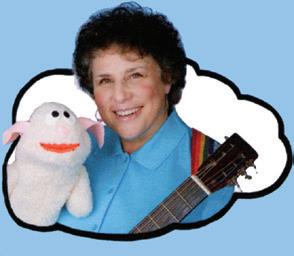




ids with well-developed leadership skills are more confident responsible, and push themselves to their full potential. Leadership helps them develop better and more creative coping skills in problem-solving and project management. The art of compromise, empathy, and good decision making skills, things most parents strive to teach their children, are also important benefits of having well-developed leadership skills. For some children, leadership comes naturally; for others, it must be developed and encouraged. Either way, parents can help develop their child’s leadership qualities so that when they are ready to attend college and enter the workforce, leading others and knowing when to follow someone else’s lead is already second nature.
Parents can help their kids develop good leadership by showing them what a good leader looks like daily. When you lead others, including your children, try to be optimistic, a good listener, treat people fairly and do the right thing. Your kids will learn these skills simply by modeling your good example.
Kids who are successful at what they try are more confident and more willing to get out of their comfort zone and help others in the future. You can do this by encouraging them to try activities where they have natural strengths and talent or assist them in projects just enough to help them succeed while still allowing them the majority of the decision and work the project entails.
Listening and good communication are keys to making a leader successful and well-liked by peers. Encourage your child to put their communication skills into practice by developing listening skills, public speaking, and expressing their frustrations in a healthy way. Parents can do this by asking their children to order their food at a restaurant, encouraging them to approach coaches or teachers when there is a problem, and teaching them to ask questions after listening to a friend talk.
School projects, team sports, clubs, or being a part of a band, orchestra, or choir helps kids understand how to work towards a goal as a group. These experiences help your child
Continued on page 14 >>>
By Sarah Lyons


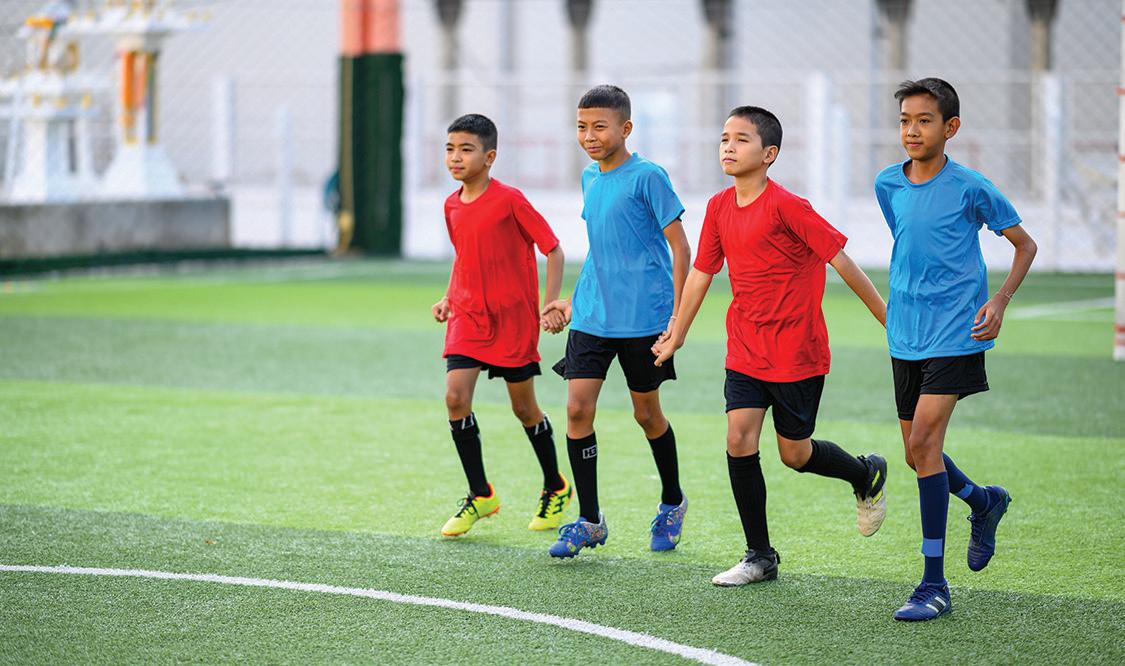
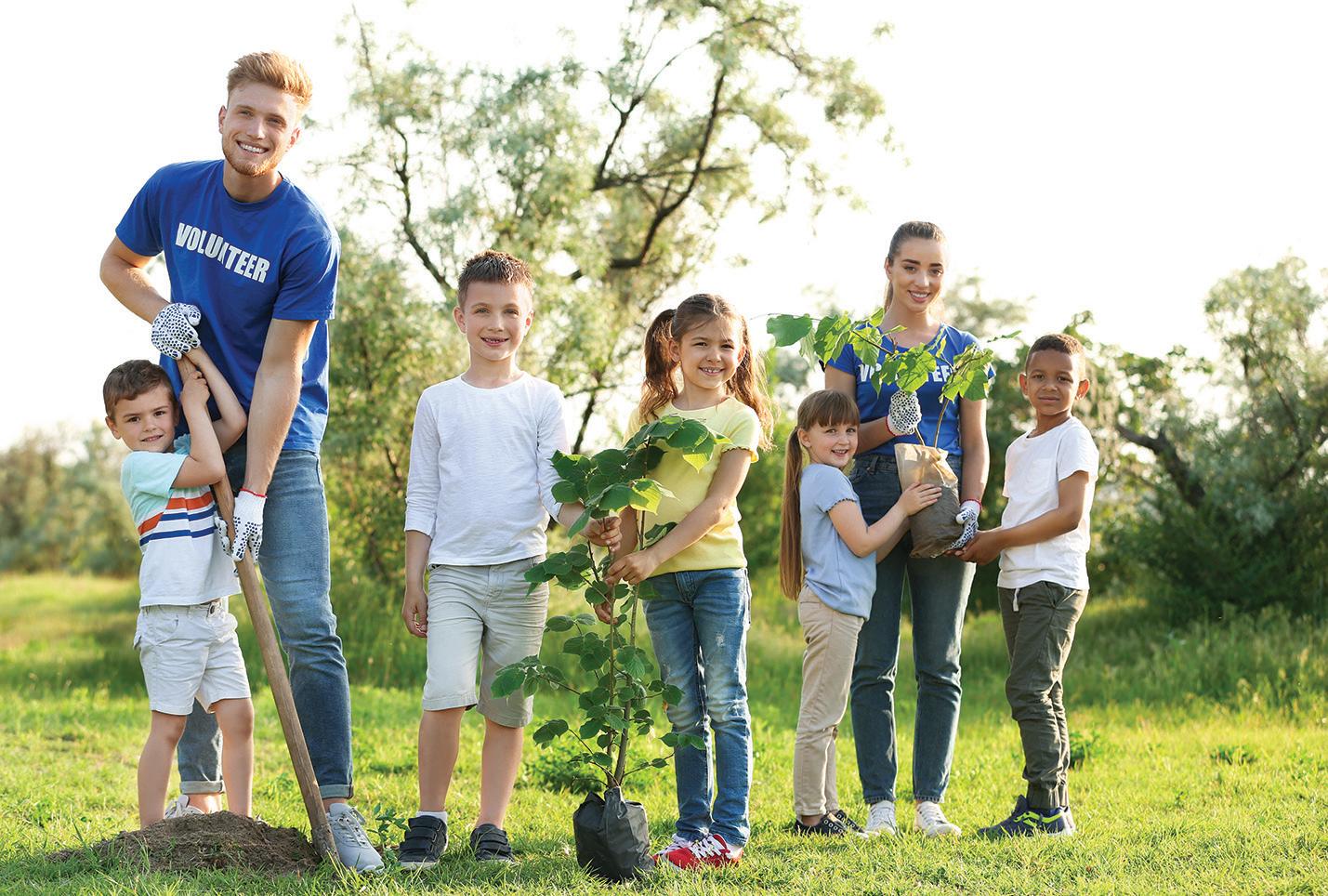
<<< Continued from page 13
understand how to be a good leader, when to listen to others, and why both are equally important.
Integrity, empathy, work ethic, respect, negotiation, and compromise are excellent skills for any leader, as well as, any student, employee, or friend. You can encourage these skills by setting a good example and talking through situations where they were or were not utilized well. Ask your child how they would have handled this differently and why. Praise them when they have used these skills well and encourage them when needed.
There is great value in diversity. Everyone has different backgrounds, experiences, and gifts. Encourage your kids to learn about other cultures and experiences and that differences make us a stronger team. They can learn to stand up to those who are singled out or viewed as different. This is what makes a great leader.
Kids who know when to solve problems and when to ask for guidance are better teammates and stronger leaders. It’s also essential to help others in the group who may be struggling. Lead by example and be encouraging and helpful when needed.
Kids who have responsibilities at a young age are better prepared to lead others. Encourage your child to get a part-time job at a young age or pick up jobs like yard work, babysitting, or volunteer work so they can build their leadership skills, develop their work ethic, and get experience in a variety of areas.
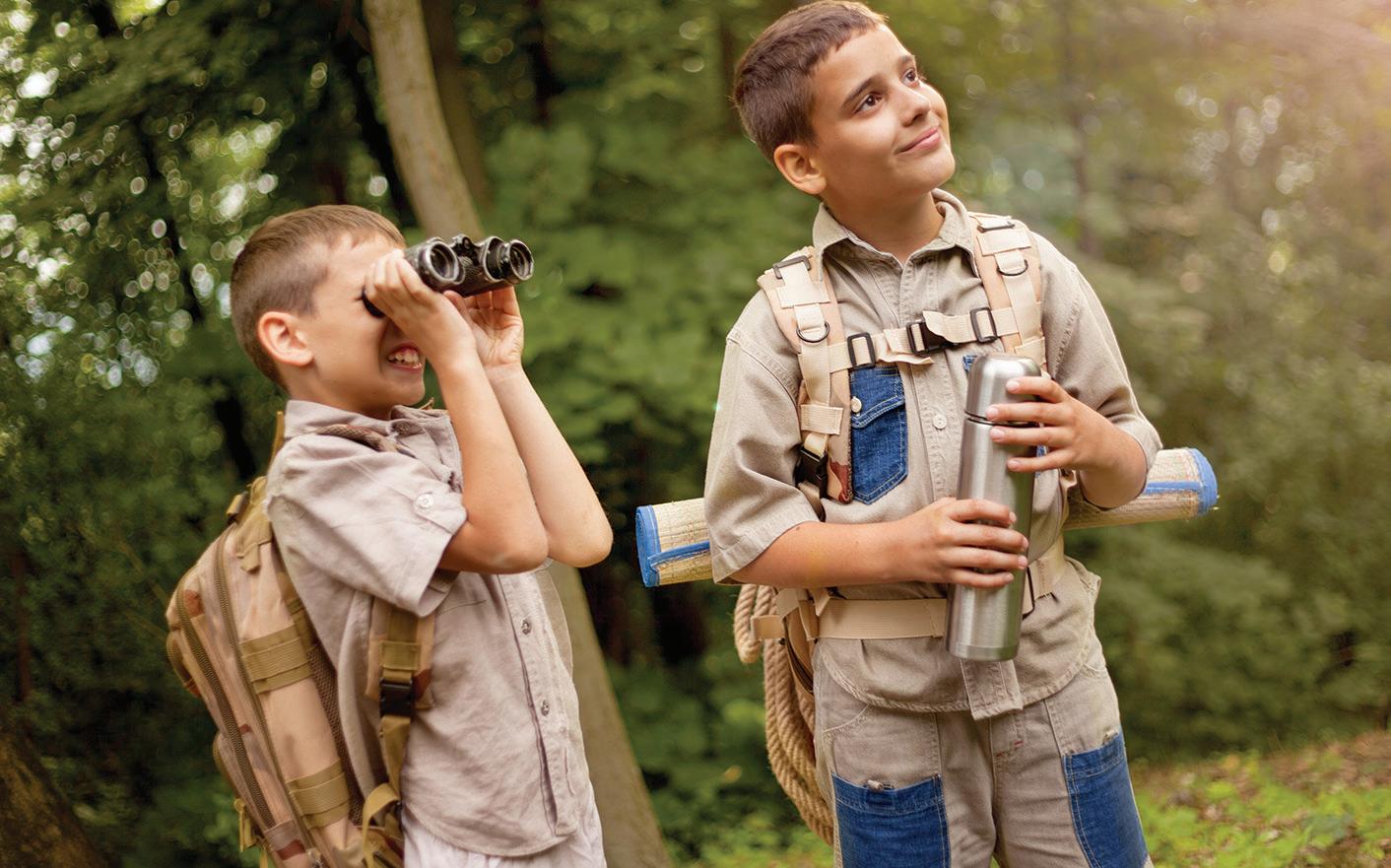
When your child has a large project to complete, encourage them to map out their plan for completing it on time. Create steps and set goals to accomplish to meet the deadline. Good project management skills will serve them well as a future leader and employee.
As your child develops strong leadership skills, it’s important to understand that they will not always be the person in charge. Having good leadership skills doesn’t mean you are always the one who is leading. Being respectful and willing to listen to others and compromise while not officially being the person who is “in charge” of the group is still a way to lead others. Whether your child is a natural leader or a great teammate, these leadership skills will serve them well in the future.
Sarah Lyons is a mom of six, including triplets. She enjoys writing, reading, and spending time outside with her kids.
Being part of a team helps build leadership and helps kids learn to work as a group and understand the art of leading and following others.
Being part of student council or government helps kids learn to lead and build speaking and negotiating skills.
If your child is interested in something specific, chances are others their age are as well. Starting their own club is a great way to learn how to lead others and share common interests.
Giving your time helps kids put others first, work on a project for the greater good, develop a good work ethic, and build leadership skills.
Being part of an academic team or clubs such as robotics, mathletes, speech and debate, National Honors Society, and science club are great ways to build skills in areas that interest them but also give them leadership skills they can use in college and the workforce.
Not everyone is drawn to team sports, but being part of a choir, orchestra, band, theater, or working on a creative project as a group can have the same benefits as team sports do when it comes to leadership skills.
Groups like Girl Scouts and Boy Scouts give kids the opportunity to work as a team and individually while helping others and being exposed to diversity, volunteer work, team building, and life skills.
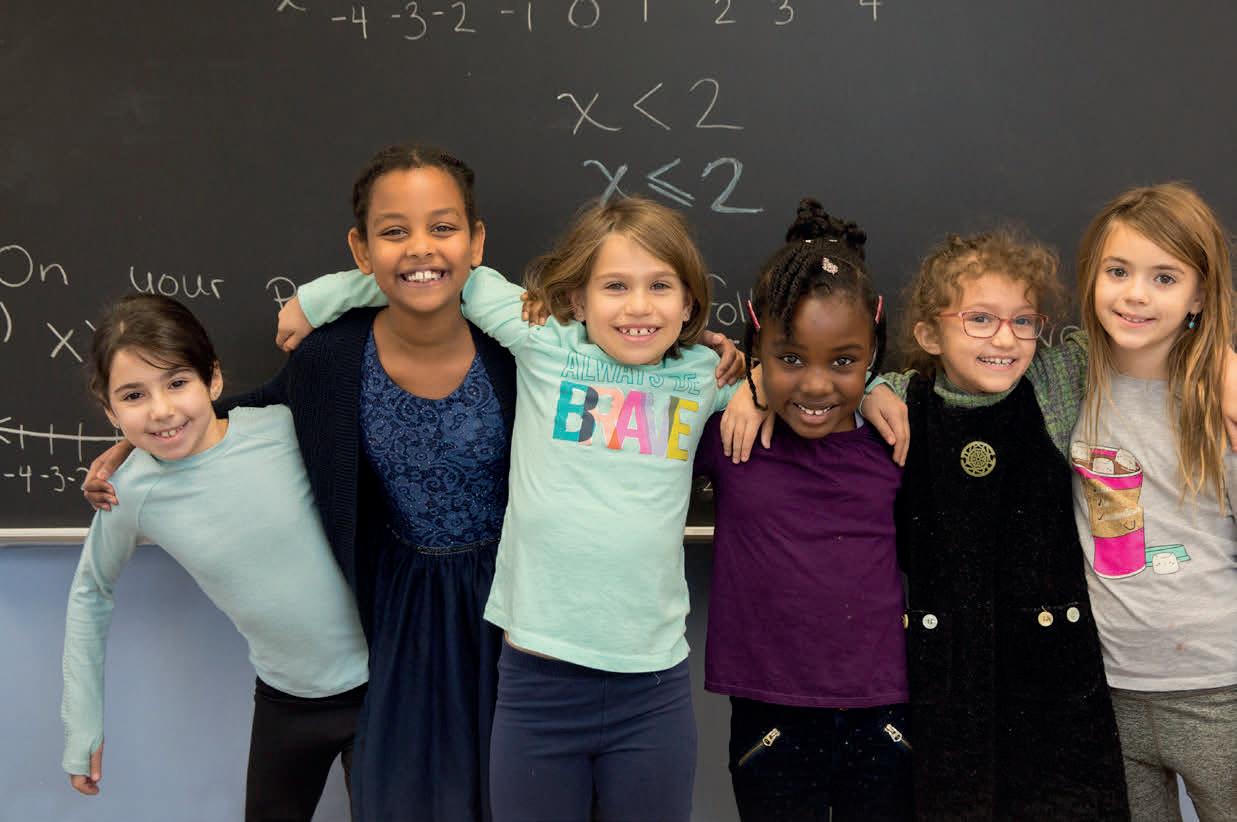

By Aaron Crowe

If you can withstand a financial emergency, give yourself a pat on the back.
Nearly half of Americans live paycheck to paycheck and 52 percent don’t have enough money to cover six months of expenses. In contrast, over half of Americans are uncomfortable with their level of emergency savings, according to a Bankrate.com survey.
The rut of working just so you can cover day-to-day expenses can lead to the worst money mistake of your life—not having an emergency fund.
Without it, you could be forced to go into debt to pay for emergency medical care, a broken car that you rely on to get to work, a busted water heater, job loss, or any other unexpected event. Sooner or later, something will pop up.
A “no-spend month” could help solve that problem so that you’re not part of the 22 percent of U.S. adults who don’t have any money in an emergency fund or the 63 percent who don’t have at least $500 set aside for emergencies, according to the survey.
The first goal for an emergency fund should be to accumulate enough to cover six months of living expenses. After that, work to increase it to a cushion of 18 to 24 months.
To give it a good kick-start, eliminate all nonessential spending for a month. Do this by sorting your expenses into “wants” vs. “needs.”
You know what these are. If you have children, you constantly have to explain these to them whenever you take them to a store and they demand cookies or something else they want when all you want
to do is get some milk and eggs and leave.
“Wants” can include eating out, going to a movie, vacation, a date night, drinking alcohol, shopping, and anything you can live without, such as cable TV.
“Needs” are pretty obvious. You’ll want to pay your rent or mortgage, buy necessary groceries, get the medical care you need, and pay your monthly bills. Don’t live without hot water or electricity to save some cash.
The mortgage and water bills can be paid with a check or transfer from your checking account. All “needs” should be paid with money you already have in hand and not with a credit card.
“Wants,” however, are often paid with a credit card and not thought about until a month later, when the bill arrives. For most of these, use cash to take a “nospend month” at least semiseriously.
If you’re really committed, avoid these “wants” entirely, don’t spend any money on them for a month and see how it goes.
Go to the coffee shop a few times a week? Pay with cash—not your phone app—or make coffee at home.
The same goes for any other daily living expenses. Leave your credit cards at home for a month and bring snacks and lunch to work. Watch broadcast TV and cancel your cable TV for a month. Ride a bike for a picnic in the park with your loved one instead of going out for dinner and a movie on date night.
Do whatever it takes to not spend money for a month beyond the basic necessities.
At the end of the month—or beginning if, you’re sure your budgeted numbers are correct—move the unspent money to a savings account or another account where you can get the money relatively quickly if needed. The point is to set aside for emergencies, which by definition can require quick access.
Hopefully, the savings from your “no-spend month” will be enough to cover your monthly expenses in an emergency fund. If possible, continue the no-spend month for another month, or at least cut out nonessentials you’ve found you can live without. Cable TV may not seem so important after a month away from it.
After that difficult first month, decide how much you can now afford to put aside each month in an emergency fund and have it automatically transferred to that account. You may not feel you need to set aside all of that first month’s savings each month and can add some “wants” back to your monthly expenses.
Security and peace of mind in knowing you can handle paying for life’s emergencies may be worth sacrificing luxuries such as expensive dinners or vacations. If all it takes to beef up your emergency fund is downsizing to mid-priced dinners out and shorter vacations closer to home, then a good night’s sleep and not worrying about paying for emergencies is probably worth it.
Aaron Crowe is a freelance journalist who specializes in personal finance writing. He writes for various websites and has worked as a reporter and editor at a few newspapers.



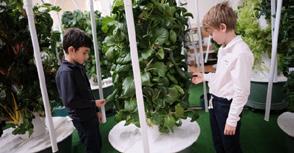



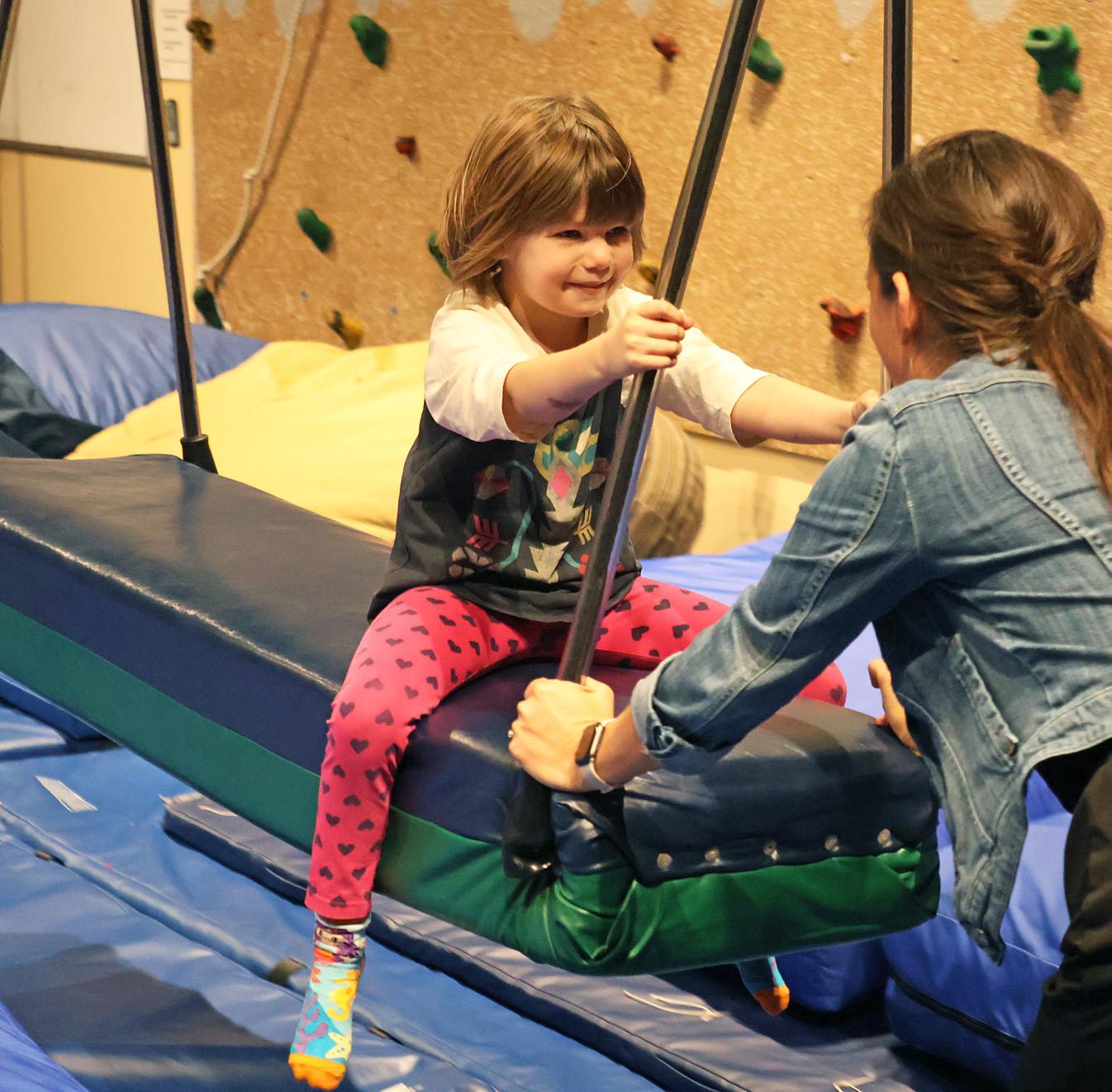
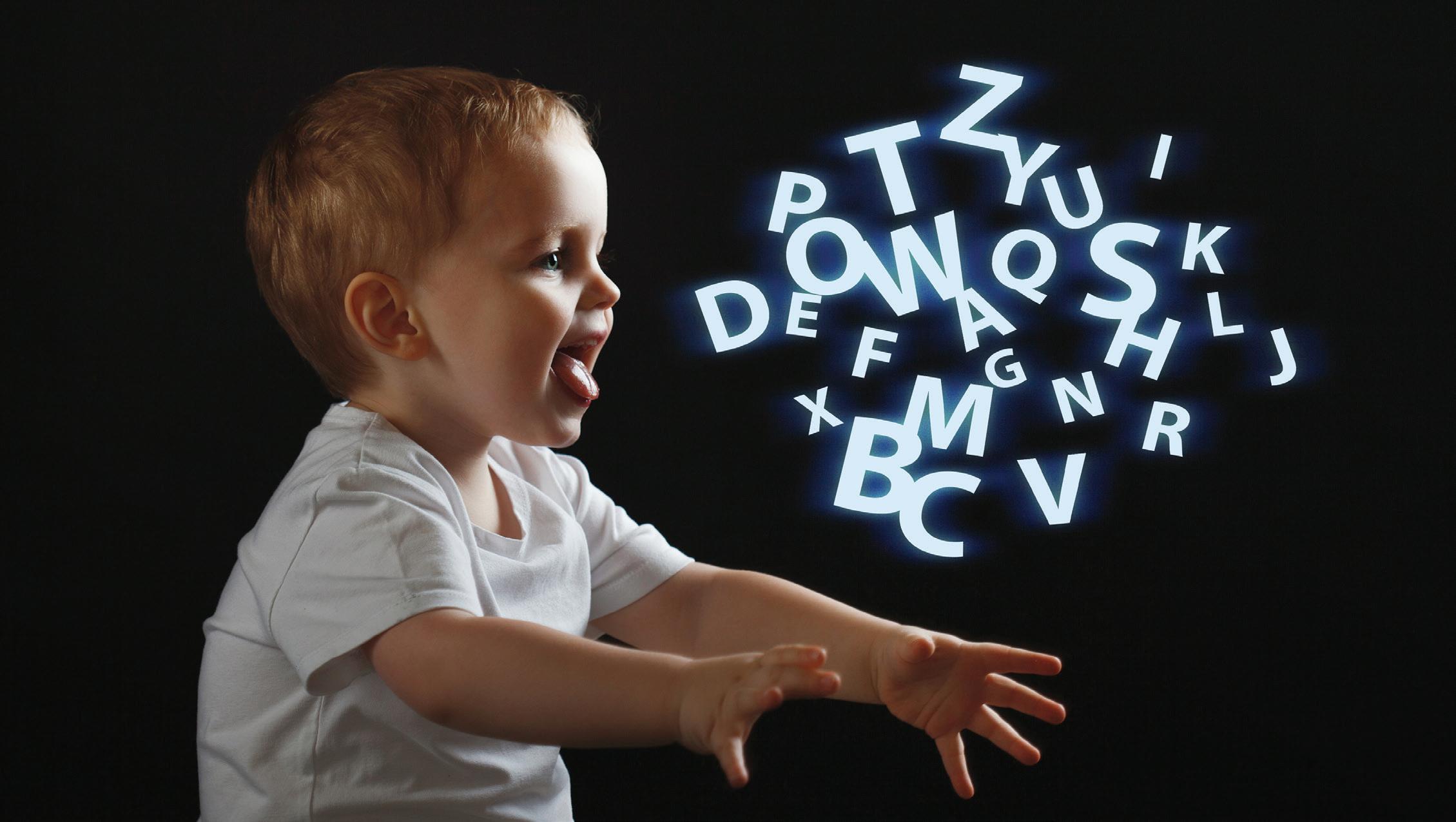
By Liz Brooke
Alot of attention is being paid to the massive learning loss that K-12 students suffered during the COVID-19 pandemic, and for good reason: according to the National Assessment of Educational Progress, 9-year-olds’ reading scores fell by the largest margin in more than 30 years during the pandemic. And that’s just one of many statistics that point to the fact that significant learning loss took place during that extreme period of uncertainty.
And while we understand the critical nature of K-12 student learning— particularly in reading—there’s been less focus on the impact of the pandemic on infants and toddlers in this area. Even though these babies and children may not be reading yet, the critical connection between oral language and reading has
been studied for the last several decades and is well documented. In fact, a 2013 study analyzed public records from more than 5,000 children in Minnesota to help quantify the relationship between pre-K language skills and reading comprehension at the third-grade level.
What this analysis revealed was that children who struggle with oral language are six times more likely to struggle with reading (compared to their peers). This is a telling statistic that proves just how valuable language is to their later reading, even if they are not talking in sentences or sitting down to read their favorite book.
For children, a significant part of oral language development comes from
environments that are rich in spoken language and social exchanges. At family gatherings, for instance, infants and toddlers are exposed to abundant language. They witness turn-taking rituals and learn from facial expressions as well as how to form sounds by watching adults speaking. And daycares are another opportunity for infants and toddlers to be surrounded by language and observe other social interactions.
The problem is that for the last two-plus years, the pandemic has impeded these kinds of social get-togethers and many daycares were closed. Starting in March 2020, infants and toddlers have often been in the presence of only their immediate family. Plus, any additional exposure has been largely to adults wearing masks, which hide facial expressions and any visual cues that are necessary to a young child’s taking in how sounds are formed

in the mouth. Masks also affect speech volume.
These factors possibly have had a negative impact on infants’ and toddlers’ oral language development and therefore their future reading ability. The good news is that there are steps that can be taken to make up for this dearth and get toddlers and infants back on the path to learning. Here are four steps parents and teachers can take to account for this learning loss:
to your babies…a lot.
Most parents understand the value of reading to young children and have continued to do that throughout the pandemic. However, many parents might not be fully aware of the importance of engaging with infants when they are babbling in repetitive consonant-vowel combinations like “ma-ma-ma” and “baba-ba” before they actually begin talking with recognizable words.
Early vocalization skills in relation to later reading ability is very important, and some parents might assume that until the infant or child is talking, there is no need to speak with them.
2 Provide daily commentary. While working as a speech-language pathologist, I used to tell parents who wanted to increase language exposure for their children to describe things they were doing throughout their day—similar to a TV commentator. Parents or other caregivers could and should engage with their child verbally, whether or not the child is talking: “Mommy is going up the stairs now—up, up, up” or “We’re going to go shopping at the mall.” For the latter, you might describe the categories of the aisles or sections of the stores as you navigate through them. If your child is not yet speaking, these
discussions will increase their language exposure, and if your child is already talking, you could start conversations with them by asking them questions. Very young children may respond in one- or two-word utterances. In this case, you can repeat and/or extend their answers into three or four words or a complete sentence.
3 Expand your language as they grow. As your child develops, you can continue to expand the conversation by using three- to four-word sentences that increase in complexity as the child grows older. You already might have been having these early conversations with your baby and toddler because they can happen naturally. Continually talking to babies helps them make sense of their world and provides social context for them long before they are actually ready to speak in words.
4 Turn to science-based instruction for help. We know the components required for learning how to read, where challenges may occur for some students, and how to prevent them. The science of reading is grounded in a collection of research from cognitive scientists and other reading experts developed over the last 50 years. Through science-based instruction, teachers can focus on phonological awareness, phonics and word recognition, fluency, vocabulary, and both oral language and text comprehension.
We are now seeing state and school district leaders throughout the U.S. seeking solutions to improve reading proficiency, with several trying to model what Mississippi accomplished through the adoption of new learning standards during 2013 to 2019. They’re using or onboarding science of reading-based programs that
provide professional development for teachers and that help early childhood and elementary educators adopt new instructional practices.
Now more than ever, our teachers and schools require support and evidencebased instruction to prepare our students to read and to be set up for success now and in the future. For K-5 teachers, their students and those children born during the pandemic who will begin school in a few years, Lexia LETRS (Language Essentials for Teachers of Reading and Spelling) incorporates strategies and tools based in the science of reading. With a focus on the relationship between oral and written language, these tools can help accelerate learning, create proficient readers, and close the learning gaps left agape by the pandemic.
Liz Brooke, Ph.D., CCC-SLP, is the chief learning officer at Lexia Learning. Dr. Liz Brooke serves as Chief Education Officer for Lexia Learning. Liz joined Lexia from the Florida Center for Reading Research (FCRR) in 2010, where she served as the Director of Interventions from 2005–2010. Prior to joining FCRR, Liz worked for several years at Massachusetts General Hospital on the Learning Disabilities Team in the Speech and Language Department where she treated and evaluated school-age children with a variety of learning disabilities. Liz earned her doctorate degree in Communication Disorders at Florida State University, a bachelor’s degree in Child Study from Tufts University and a master’s degree in Communication Sciences & Disorders as well as a reading certification program at Massachusetts General Hospital-Institute of Health Professions.
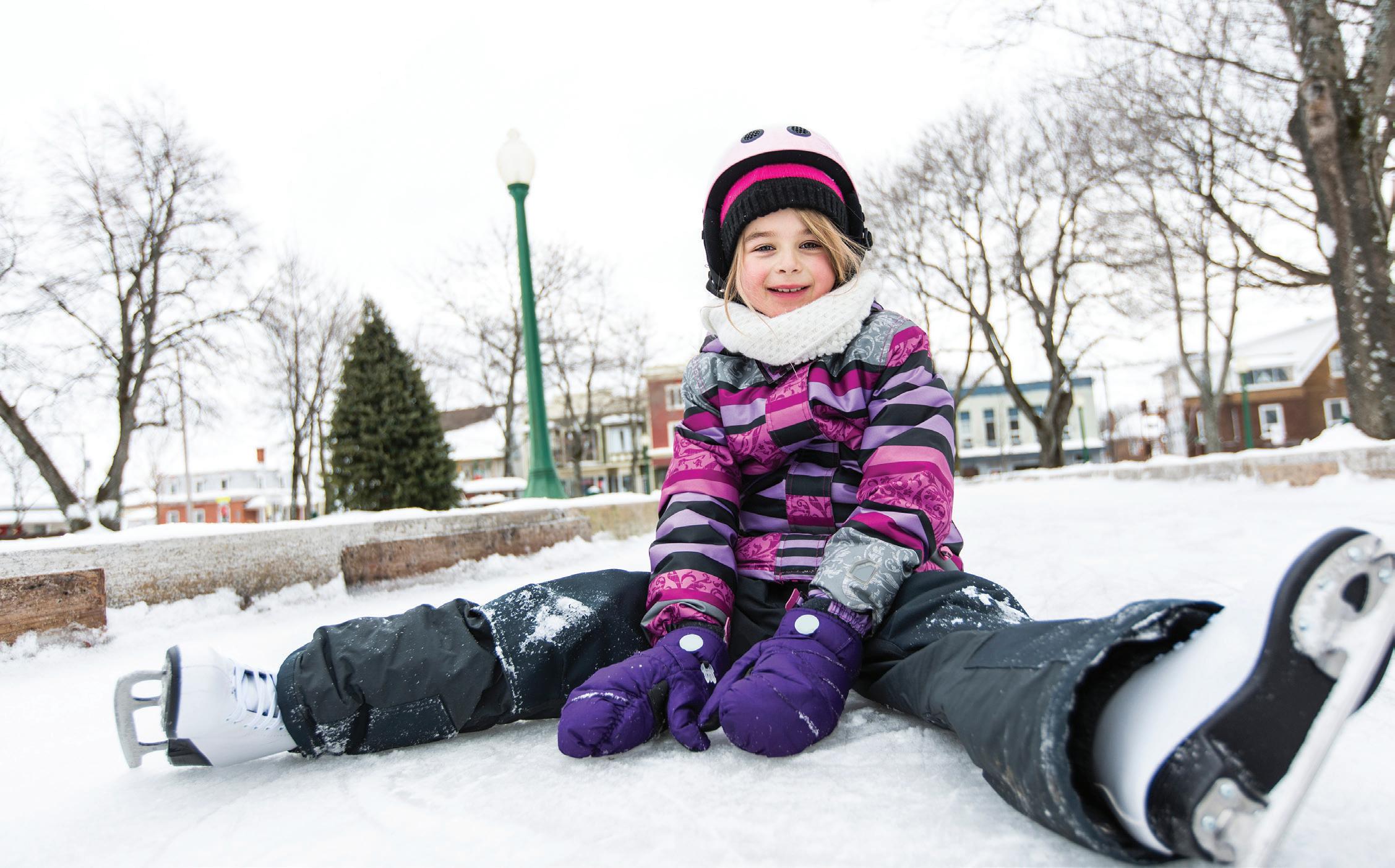
Ice skating is a fun activity... ...that gets kids physically active and teaches them a lifelong skill.
Get started teaching your kids with these 5 tips. Teaching a young kid to ice skate is fun for both parent and child. Although most children do not express an interest in ice skating until they are at least three years old, any child who can walk can technically learn to skate. If your child wants to begin learning, be sure to work carefully with them, teaching them both the technique and safety involved in ice skating.

Dress your child warmly, but correctly.
A jacket, gloves and a helmet. Skip the snow pants; the slick material makes it harder to get up from falls. Stick to one pair of medium socks. Anything thicker and the boot won’t fully tighten. Either figure or hockey skates are fine, but stay away from double runners. They have no edges and slip and slide too much. When you buy skates, always have your child with you to try them on. You want her ankles to be straight up – they’ll be that way on the ice. Lastly, make sure that the blades have been sharpened.

First, teach your child how to fall.
He’s going to do it often. Have him bend his knees, lean to one side and gently go down. To get back up, have him kneel on both knees and, while keeping his back straight, bring one skate up onto the ice and push down on that knee. He’ll pull himself up and bring the other skate onto the ice.
Start with little steps.
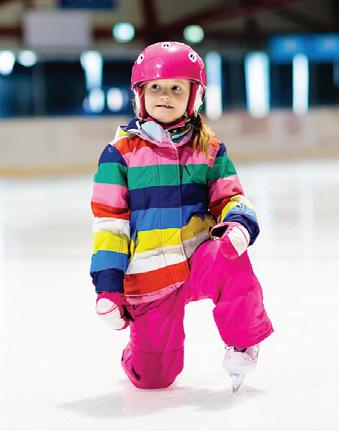
Lift one foot. Put it down, then lift the other. She’ll get a feel for the blade on the ice and for shifting her weight. Have her hands out in front and pushing down, as if she’s pushing down on a table, to help maintain balance. With confidence, she can start to glide with both blades on the ice. To build up speed when she’s ready, and with knees bent and feet together, have her bring one skate behind her and push off with the inside edge of the blade. During all of this, stand either to her side or in front of her with your hands under her hands. Just avoid taking only one of her hands in the
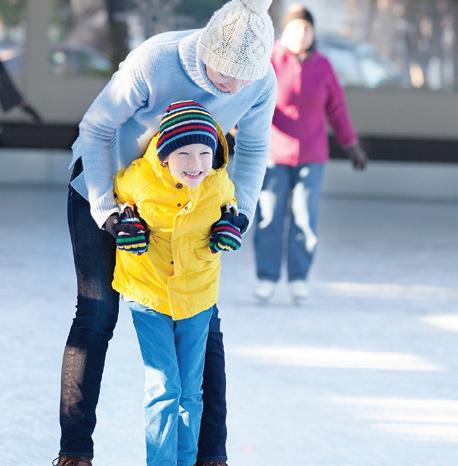
name of assistance. It will throw off her balance.
With increased speed comes the need to stop. Before you teach any technique, have him stand and, with feet together, have him push out the inside edge of each blade to get a feel of shaving the ice. Once he has that, have him stop by doing a snow plow, bending his knees, bringing his toes together in an inverted V, and pushing down with his hands to maintain balance. After the plow, with his legs together and knees bent, have him put his weight on one leg and have the opposite skate slide out.
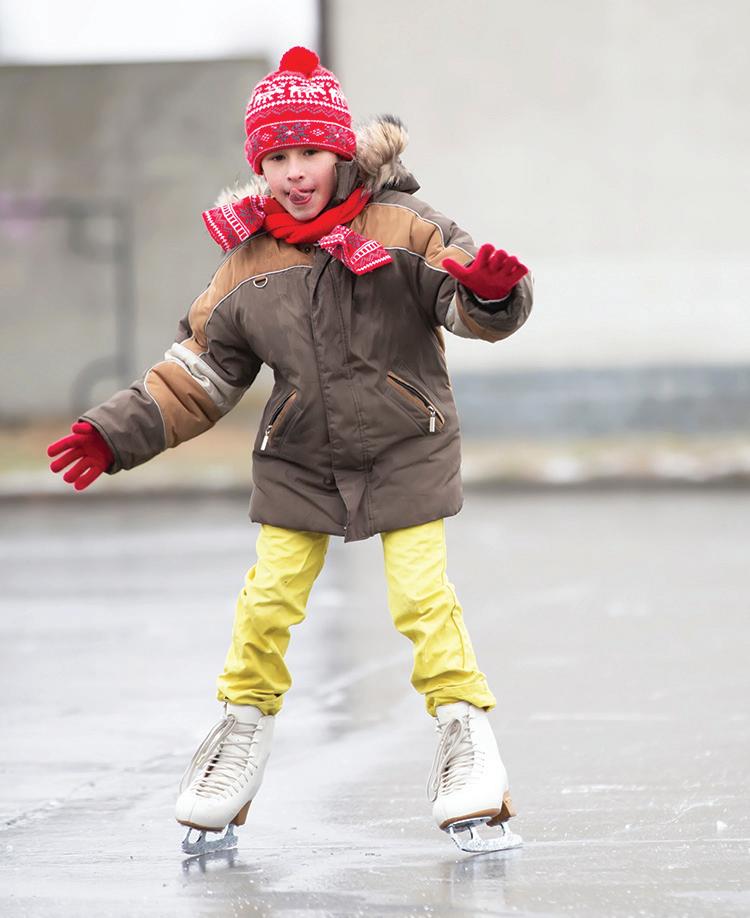
Keep your feedback positive, stressing the progress that’s been made.
Keep initial lessons to 25 minutes. Kids’ bodies start to hurt after that point. Safety Tips
At lakes and ponds, walk around the perimeter of the area you want to skate and look carefully at the ice. It should be smooth, thick, blue or clear-colored, with ice that looks at least 6 inches thick. Light grey, dark black or slushy ice is not safe. The ground around the edge of the ice should be frozen, with no flowing water near the edges of the ice. If the surface looks safe, slowly skate the outside area, looking and listening for cracks. Go slow and back away if you encounter thin ice.
CONTACT LOCAL POLICE OR THE FIRE DEPARTMENT FOR CONDITIONS AT A SKATING POND.
Only skate on ice that is monitored for safety. If while skating, the ice starts to crack beneath you, get down on all fours (distributing your body weight evenly), stay low and crawl to safety.

NEVER SKATE ALONE.
In any emergency, you’ll need someone else’s help.
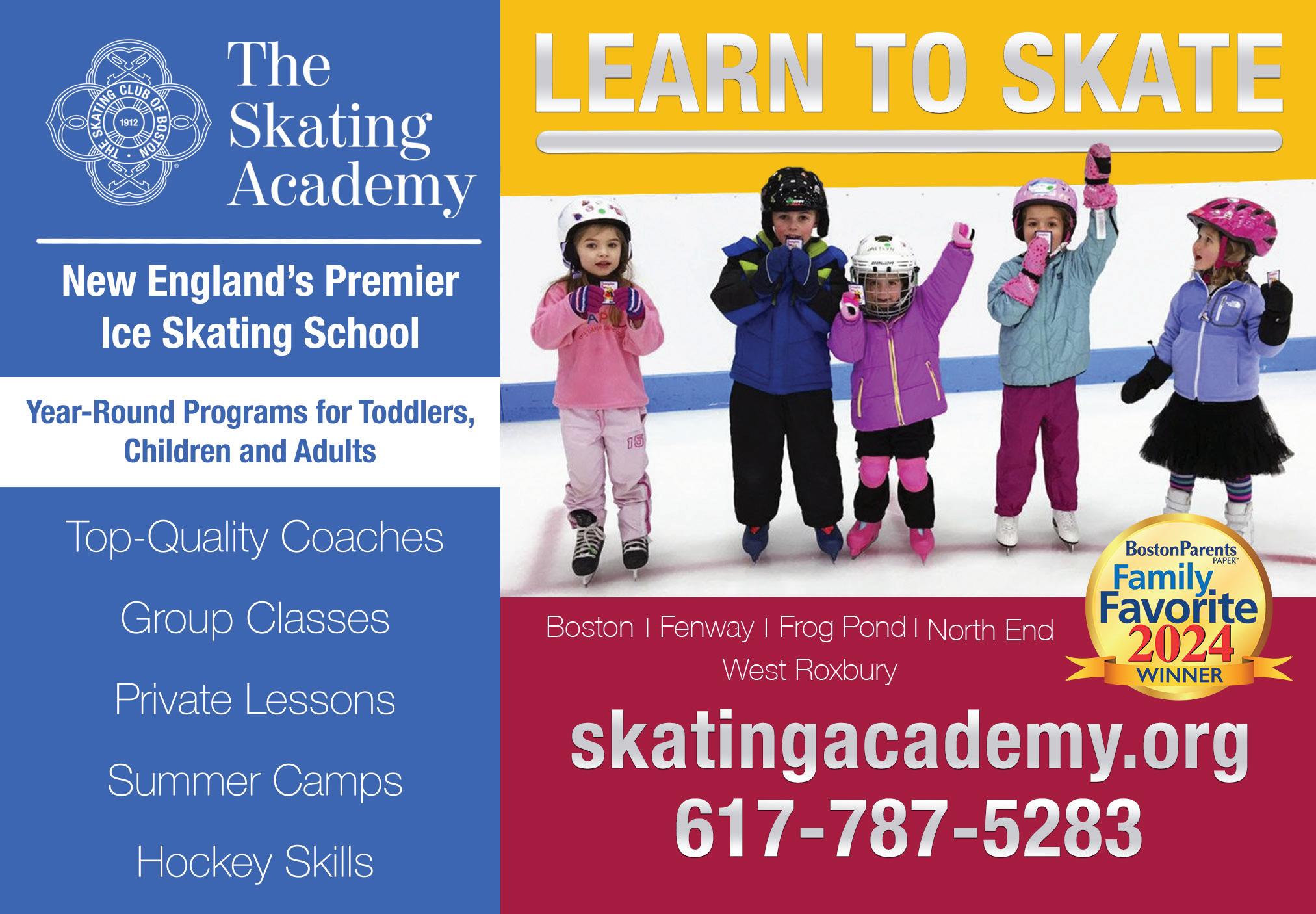


IN NEW ENGLAND, WE’RE INCREDIBLY FORTUNATE BECAUSE WE HAVE AN ABUNDANCE of summer camps for our children to choose from. Whether you’re looking for a day or sleepaway camp, one that focuses on the performing arts, science, or whatever else your child is passionate about, it more than likely exists in our region.






The opportunities that summer camp provides are endless: the ability to try new things, the chance to make new friends, and the prospect of gaining independence are just a few. Consider the possibilities:
DAY CAMPS typically serve children ages 3-15. Session lengths usually vary from one to eight weeks. Some camps offer up to ten weeks of programming, before and after camp programs are offered for an additional fee at some day camps.
OVERNIGHT (also called Resident or Sleepaway) Camps usually serve children ages 6-18. Campers stay at camp for one to eight weeks, depending on the camp’s session length.
GENERAL CAMPS offer a broad range of activities. Many allow campers to focus on one or a few areas while encouraging them to try a variety of others. It is sometimes possible to explore an activity or interest in depth within the context of the whole program.
TRIP & TRAVEL CAMPS involve outdoor exploration through active sports like biking, hiking, climbing, and canoeing. Campers spend most of their time traveling and preparing to travel.
The only downside to having so many options is that it can feel like an exhausting search to find the right fit for your kids. We want them to be happy. We want them to feel comfortable. And, most of all, we want them to be safe. But how does a parent know they are making the right choice? Read on to find a wide range of information that will answer your checklist of questions regarding how to best decipher the information in all of those brochures and how to make the most of an informational visit. You’ll have better peace of mind, and chances are, your kids will have an incredible summer.
Before you start scheduling camp interviews, research the options that appeal most to your family, then weigh the pros and cons of each (you can even grade them on a points system if you like). After you’ve compiled a list in order of interest, start eliminating some. You don’t want to drive yourself crazy going on interviews for camps that aren’t all that appealing to you. It’s a waste of your time and theirs. Once you’ve ruled out camps that don’t meet your essential search criteria or
SPECIALTY CAMPS are based in day or resident settings. Popular options for specialization include horseback riding, the arts, sports, computers, or travel. Programming revolves around intensive exposure to the specialty area.
CAMPS FOR SPECIAL POPULATIONS serve specific clientele like children or adults with particular medical conditions, disabilities, or special needs. Some camps focus on campers who share specific diagnoses, while others are geared to meet a broader array of needs at any time.
RELIGIOUSLY AFFILIATED CAMPS offer religious education formally and informally. Review materials carefully for explanations of how religion influences a camp’s culture to find one with the balance that best matches your family’s values and beliefs.
FAMILY CAMP SESSIONS include family members of all ages, from grandparents to infants. Accommodations vary, as do program options and session length. The focus is on being together as a family—to learn, to relax, and to enjoy new experiences and adventures.
expectations, begin exploring the details of each option you like. Sometimes, the filtering process yields too many camps to interview personally; sometimes, it doesn’t yield enough. Adjust key variables, such as location and session length, to narrow or expand the number of options on the results page. Use the results page to go directly to camp websites.
Camp interviews may feel tedious at times, depending on how many you plan on talking to. Still, they are necessary in determining how your child might fit into the environment. Go into each interview armed with knowledge of your pros and cons so that you have your questions firmly planted in your mind. How does the camp convey who they are and reflect the world they’ve created exclusively for a child’s benefit? Camp seekers can learn much from a close look at camp websites, brochures, photos, videos, FAQs, newsletters, social media, and camper or parent testimonials. Many camp websites are a gateway to most camp information on this list,

from video content to downloadable brochures and forms, all reflecting the camp’s culture.
Camps are much more than lists of activities they offer; they are vibrant educational communities – and no two are exactly alike. There is probably not just one perfect camp for your child. More than one camp may turn out to be a great fit, given your search criteria, so the interviewing stage will most likely factor into your final decision and help you pinpoint the camp. So, how do you decide between two (or a few camps) with comparable activities, locations, schedules, amenities, and prices?
Enough research will provide answers to your questions without you having to utter a single word. Camps try to anticipate what families need to know and provide this information online. You’ll want to use interview time to ask questions that haven’t already been answered – questions that explore the fit for your child.
Are you running low on time? Interviews with some camp head honchos may already be available online. You can also consult with friends who’ve previously met with the camp for information you never even realized you might want. Look for an interview with the example,; you might see photos on the website or Facebook showing the salad bar or a cabin group sitting around the table with food served family-style. This might spark a question about camp food and how your child’s dietary needs can be met. Or, combing through the part of a website developed exclusively for parents of overnight campers might enable you to understand the camp’s plan and suggestions for communicating with your camper. Perhaps reading the director’s blog from last summer or looking at newsletters might give you insight into the camp’s philosophy and culture.
You’re the expert on your child! What aspects of his personality might affect the camp fit? (Your child is shy and cautious in new situations, for instance. Or your child needs to have a certain amount of time to practice music, sports or academics.)
Submitted by American Camp Association, New England.
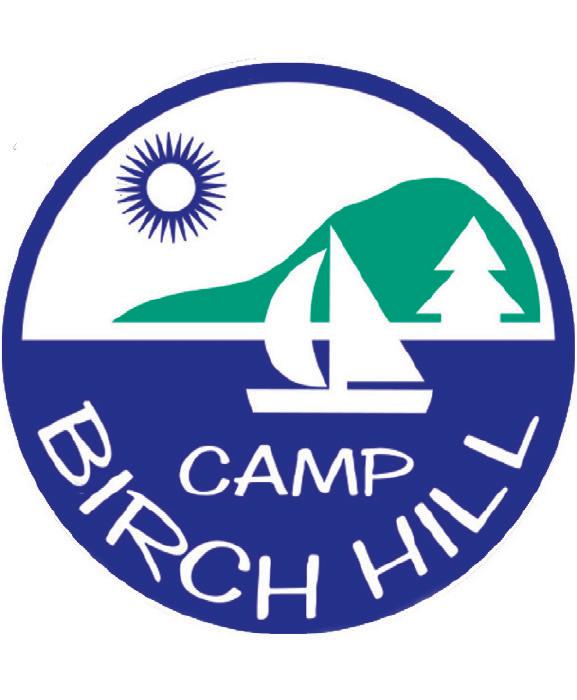
Week
June 29 – July 12, 2025 July 13 – July 26, 2025 July 27 – August 9, 2025 4 Week Sessions June 29 – July 26, 2025 July 13 – August 9, 2025 6 Week Sessions June 29 – August 9, 2025
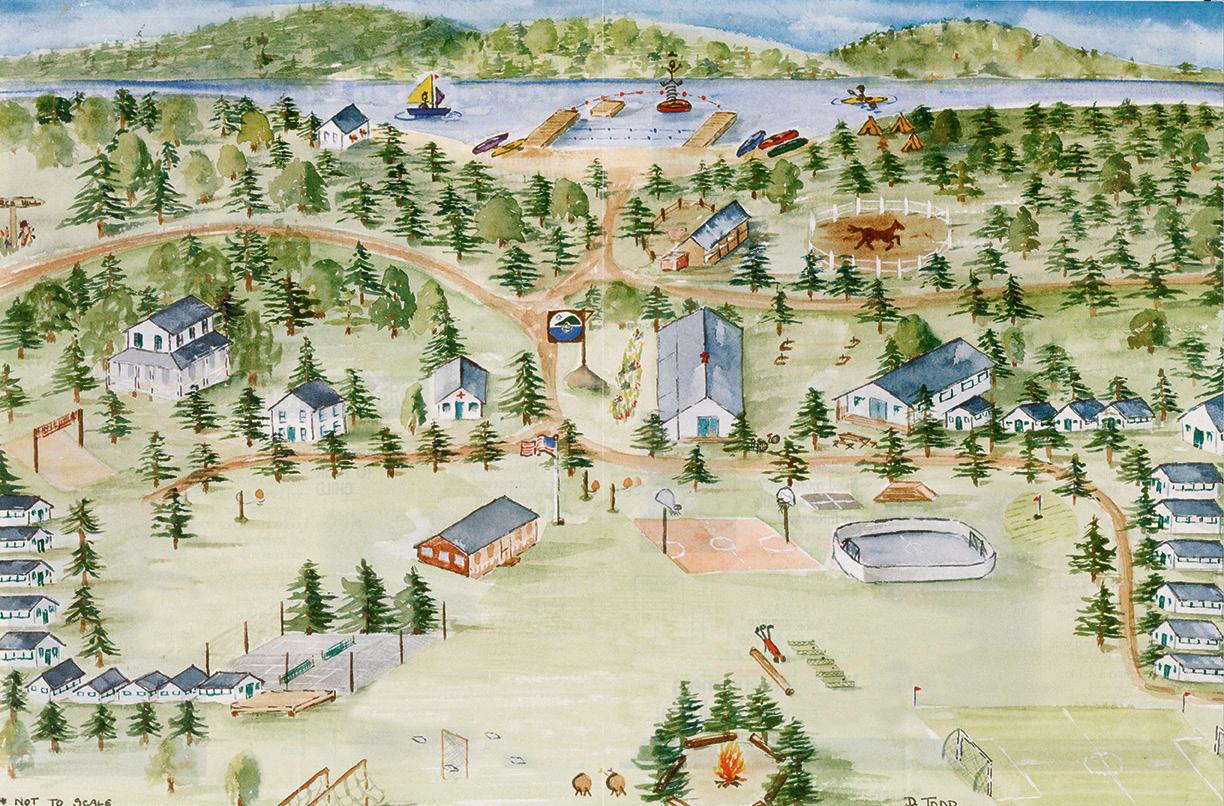

Boston Ballet School offers a variety of summer programs that provide a platform for students to elevate their knowledge, refine technique, and explore new dance styles.
Our expert faculty work with students ages 3–17* to create a supportive and enriching environment, where they can first be introduced to ballet, or work to master their training.
Register today to secure your place! bostonballet.org/bbs-summer


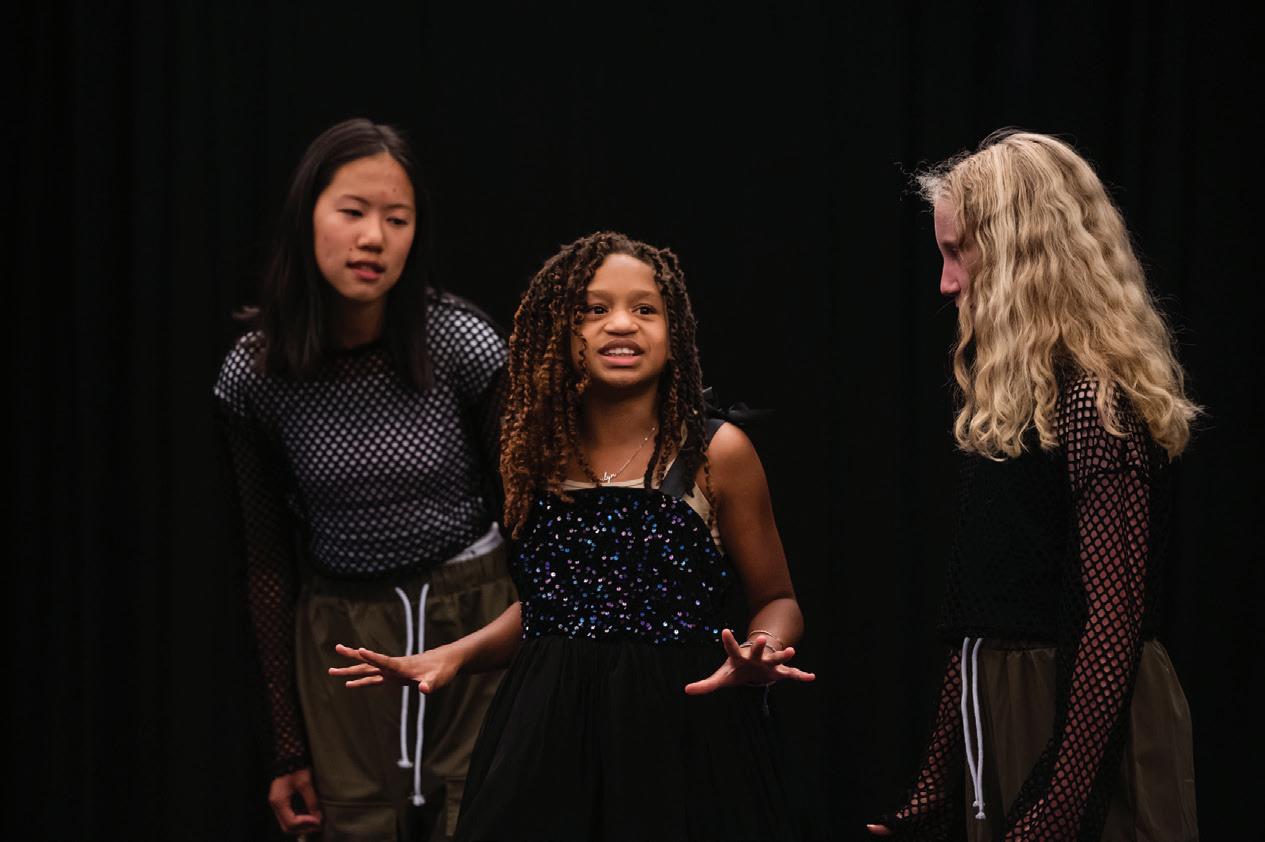


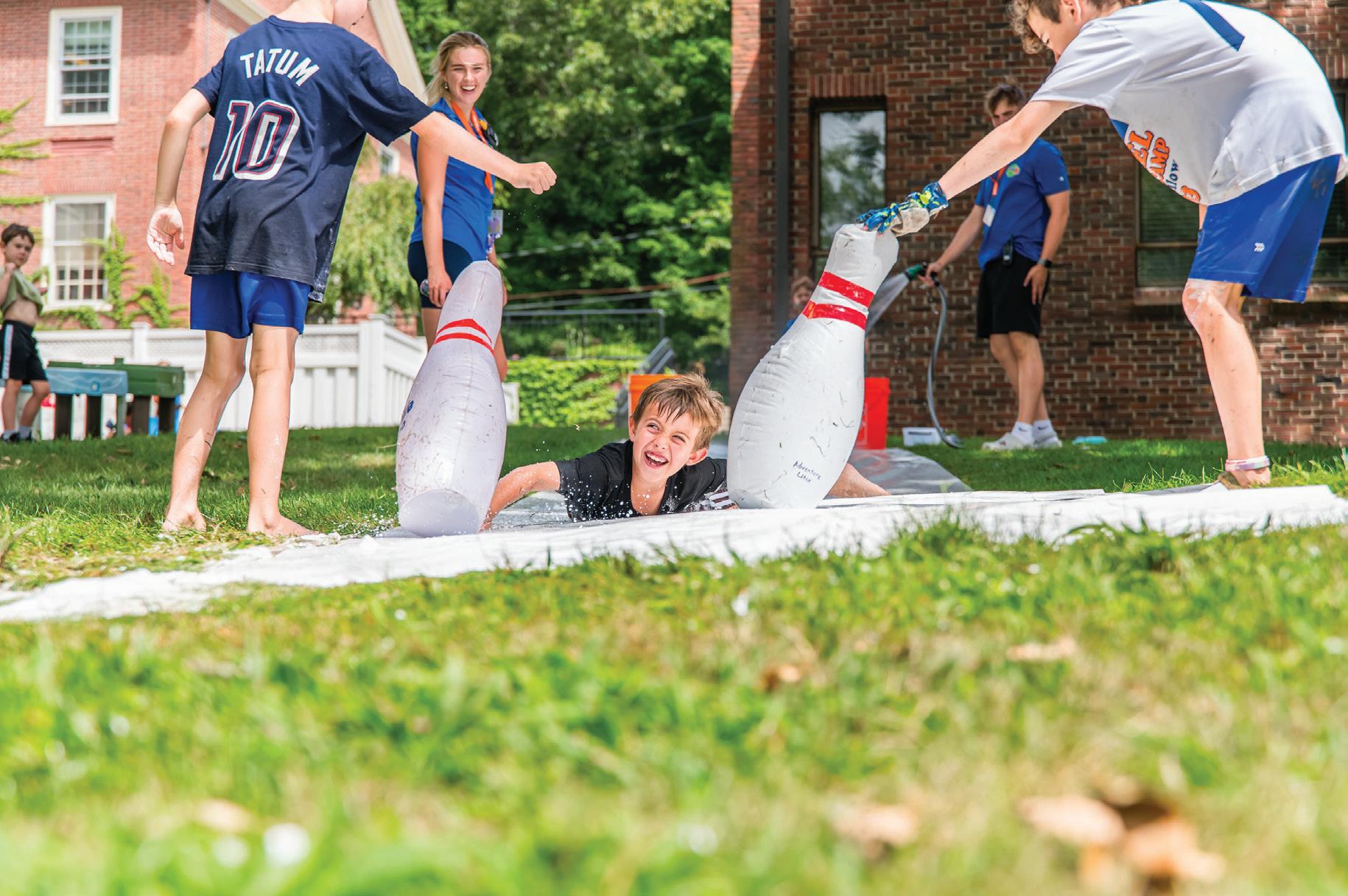
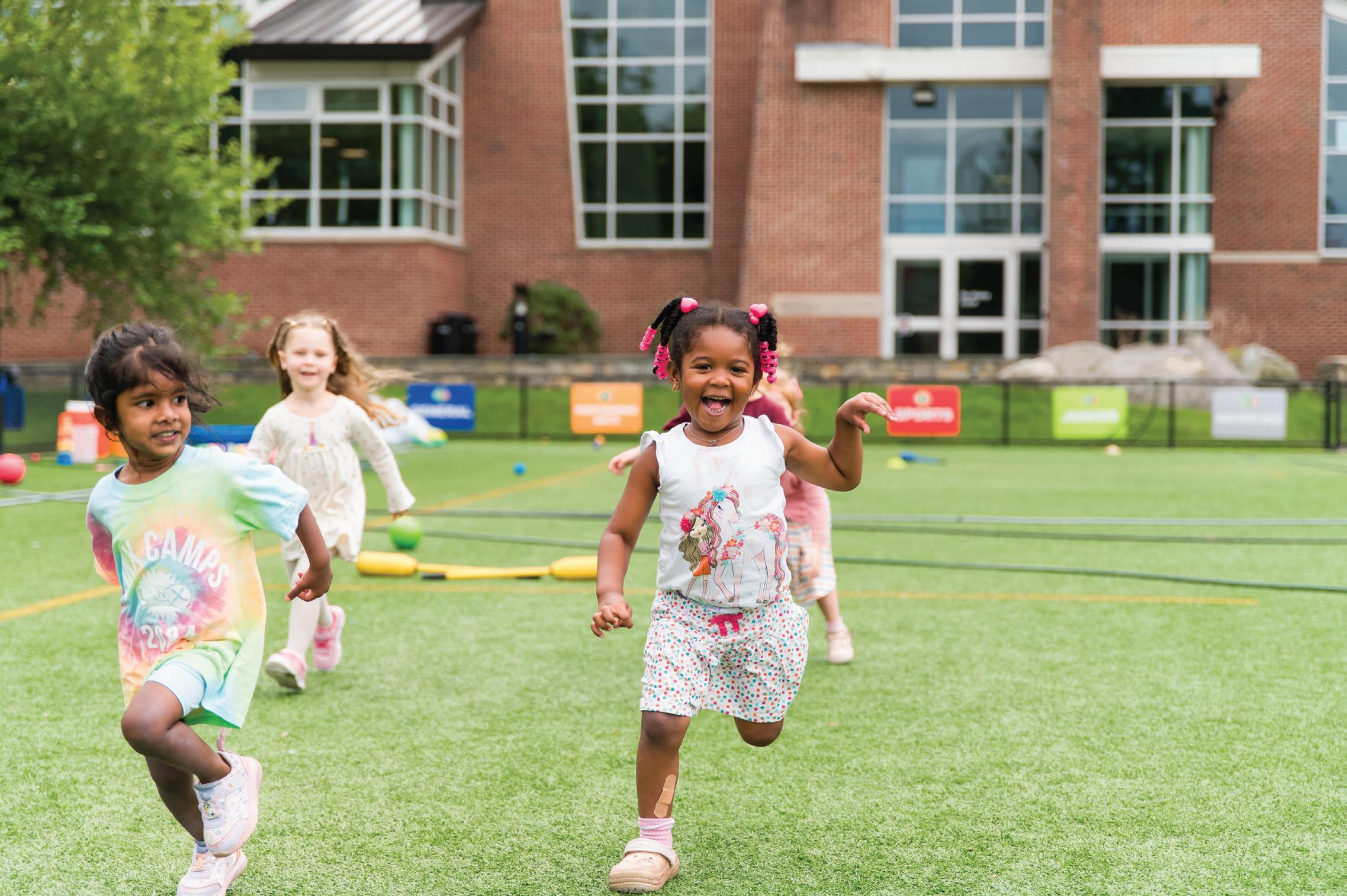
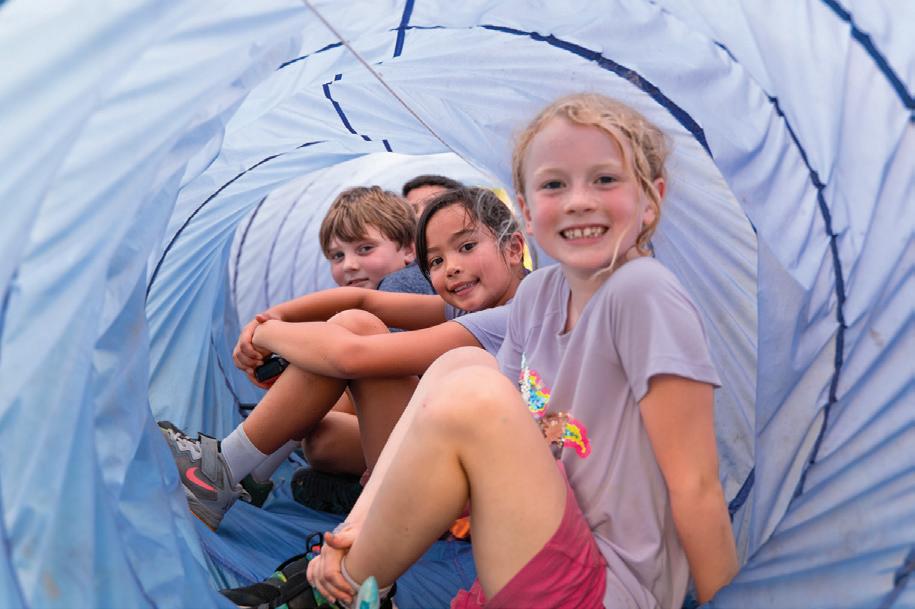

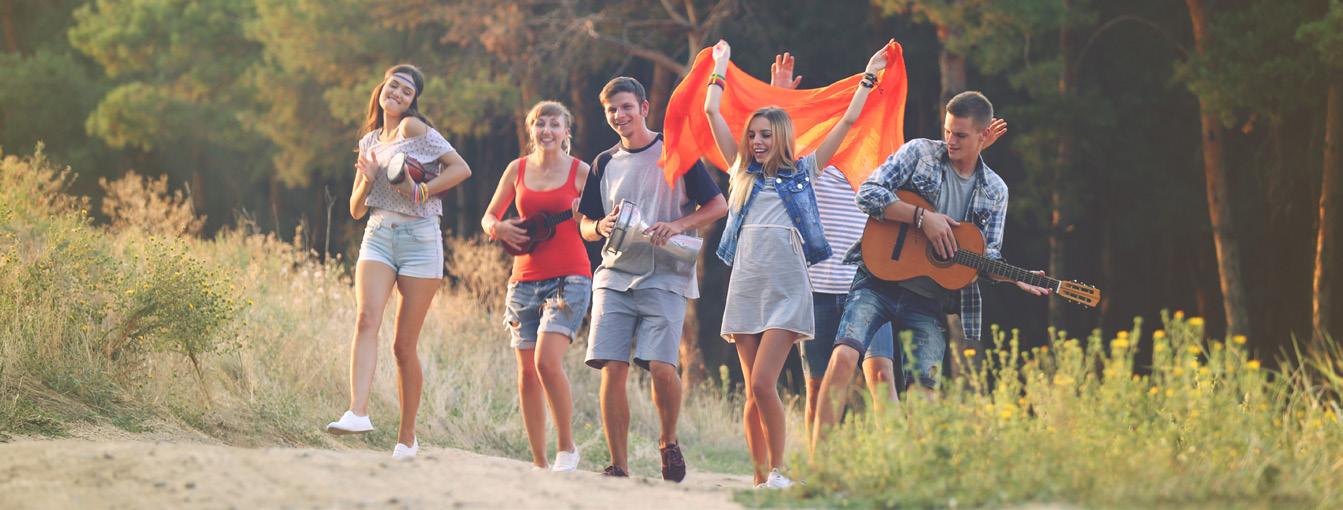
Summer often conjures images of camps for younger kids, where they make friends, learn new skills, and have fun. But as children grow into their teen years, they still benefit from engaging, enriching summer experiences—just tailored to their evolving interests and goals. While babysitting, mowing lawns, or lifeguarding are great ways for teens to spend their summer, there’s a wealth of opportunities that can help them prepare for their future, especially if they’re college-focused. Here’s a look at some activities and their benefits:
Community Service Camps: These camps allow teens to give back to their communities while learning valuable skills. Whether it’s packing food for the homeless, assisting with community projects, or even helping to build homes, teens gain hands-on experience that fosters a sense of purpose.
Interest-Based Camps: For teens passionate about sports, arts, computer science or other activities, specialized camps provide an immersive environment to develop their skills. From improving soccer techniques to exploring the arts or deepening their faith, these camps offer a focused approach to personal growth.
Team-Building Camps: At camp, teens meet peers from diverse backgrounds and learn to work as a team through collaborative activities. Trust-building exercises and group projects teach cooperation— skills that are vital in college and beyond.
For teens with a clear interest in a particular field, internships provide an excellent opportunity to gain real-world experience. Whether shadowing a doctor, assisting in a lab, or working at a local business, internships offer insight into potential career paths and look impressive on college applications.
Teens interested in STEM fields can
often find summer research opportunities through universities, science institutes, or specialized programs. These experiences allow students to contribute to meaningful projects, learn advanced methodologies, and connect with professionals in their field.
For those still exploring career options, job shadowing provides a chance to observe professionals at work. Spending a day or two with a mentor can help teens understand the day-to-day responsibilities of a job and determine whether it aligns with their interests.
Summer is a perfect time for teens to unplug and dive into interests they might not have time for during the school year. Whether attending camps focused on creative arts, sports, or technology, or taking guitar lessons, teens can develop new passions or refine existing ones, which could influence their future studies or careers.
Experiences like camps, internships, or job shadowing encourage teens to step out of their comfort zones. These activities require them to adapt to new environments, manage their time, and interact with others—key skills for college and adulthood.
Whether through sports camps, outdoor adventure programs, or summer jobs that involve movement, staying physically active during the summer is essential. These activities help teens maintain their health while fostering discipline, developing skills and teamwork.
Whether through sports camps, outdoor adventure programs, or summer jobs that involve movement, staying physically active during the summer is essential. These activities help teens maintain their health while fostering discipline, developing skills and teamwork.
Spending time away from home — whether at a residential camp, internship, or through international travel — often helps teens gain a new appreciation for family life and everyday comforts, from home-cooked meals to their own bed.
Summer isn’t just for relaxing—it’s a time to grow, explore, and prepare for the future. Whether through camps, internships, research, jobs or other activities, college-focused teens can make the most of their summer while creating memories, making friends and developing skills that will last a lifetime. And yes, there’s still plenty of time for those odd jobs to help fund next year’s adventures!


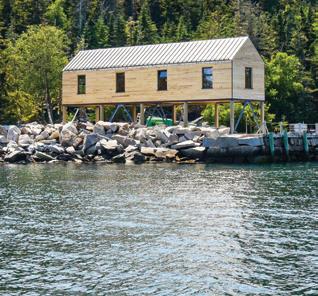



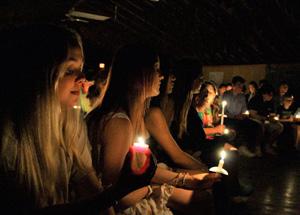
Camp TraditionsDiscover the magic of Camp Frank A. Day
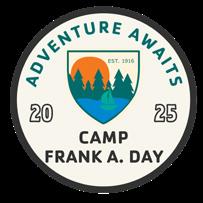
YMCA CAMP FRANK A. DAY
WEST SUBURBAN Beautiful Acceptance
Opening
Learn More at a Virutal Info Session, held throughout the year
Adventure & Independence Awaits




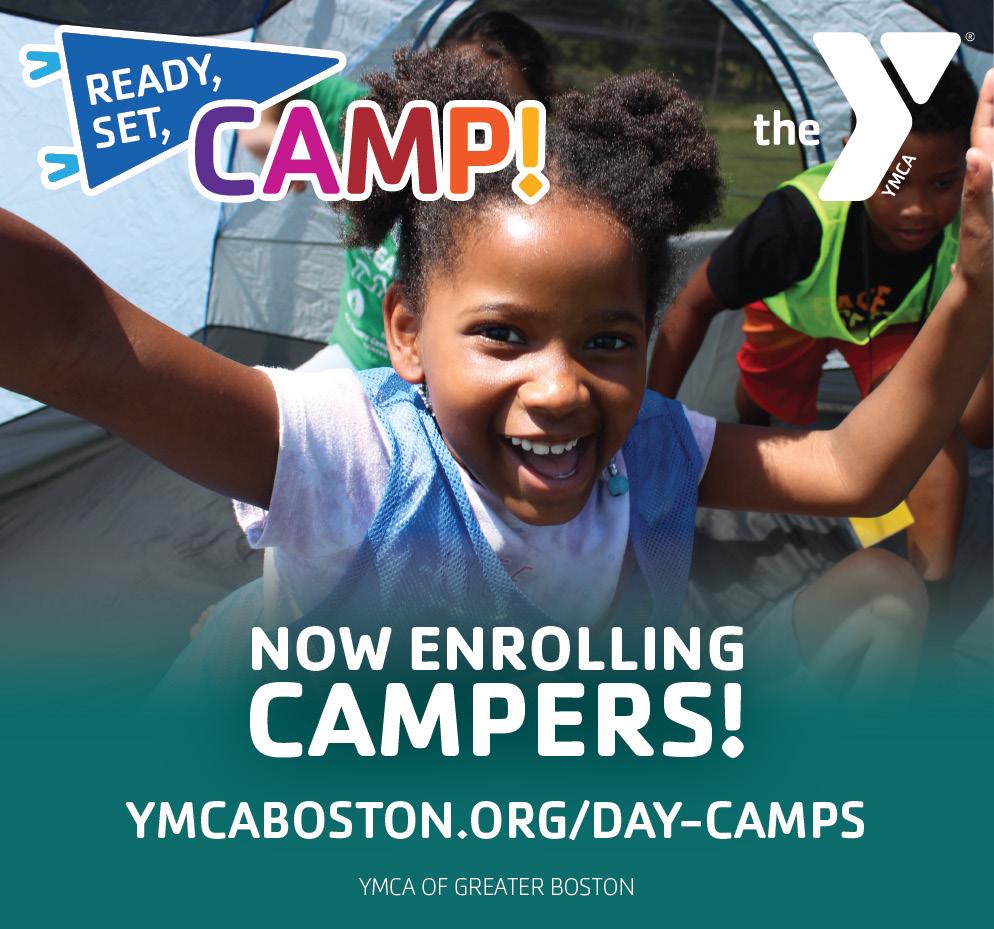
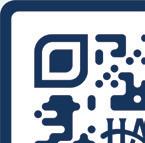

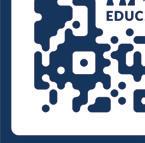





“
“ It's, like, the best camp ever. Hale Summer Camps
Register today for
swimming, boating, hiking, mountain biking, and more!


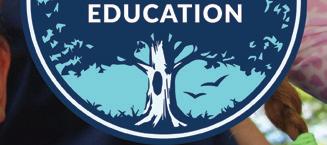
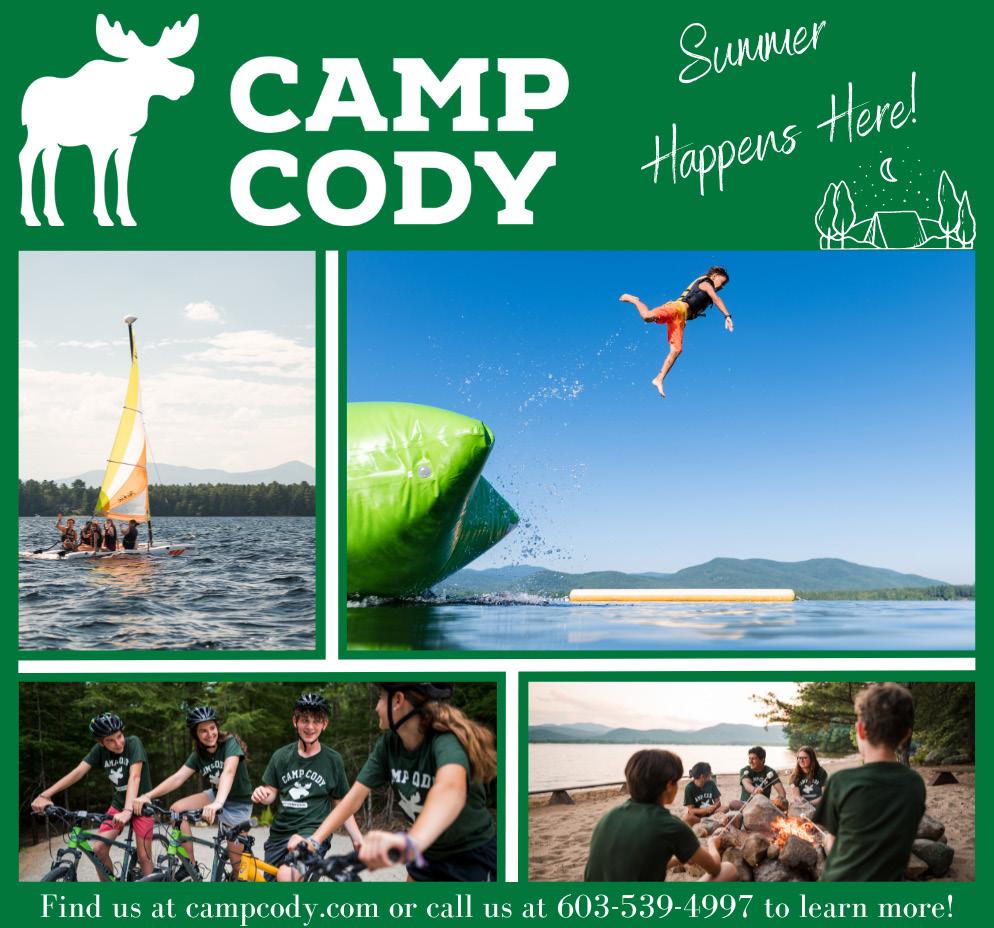
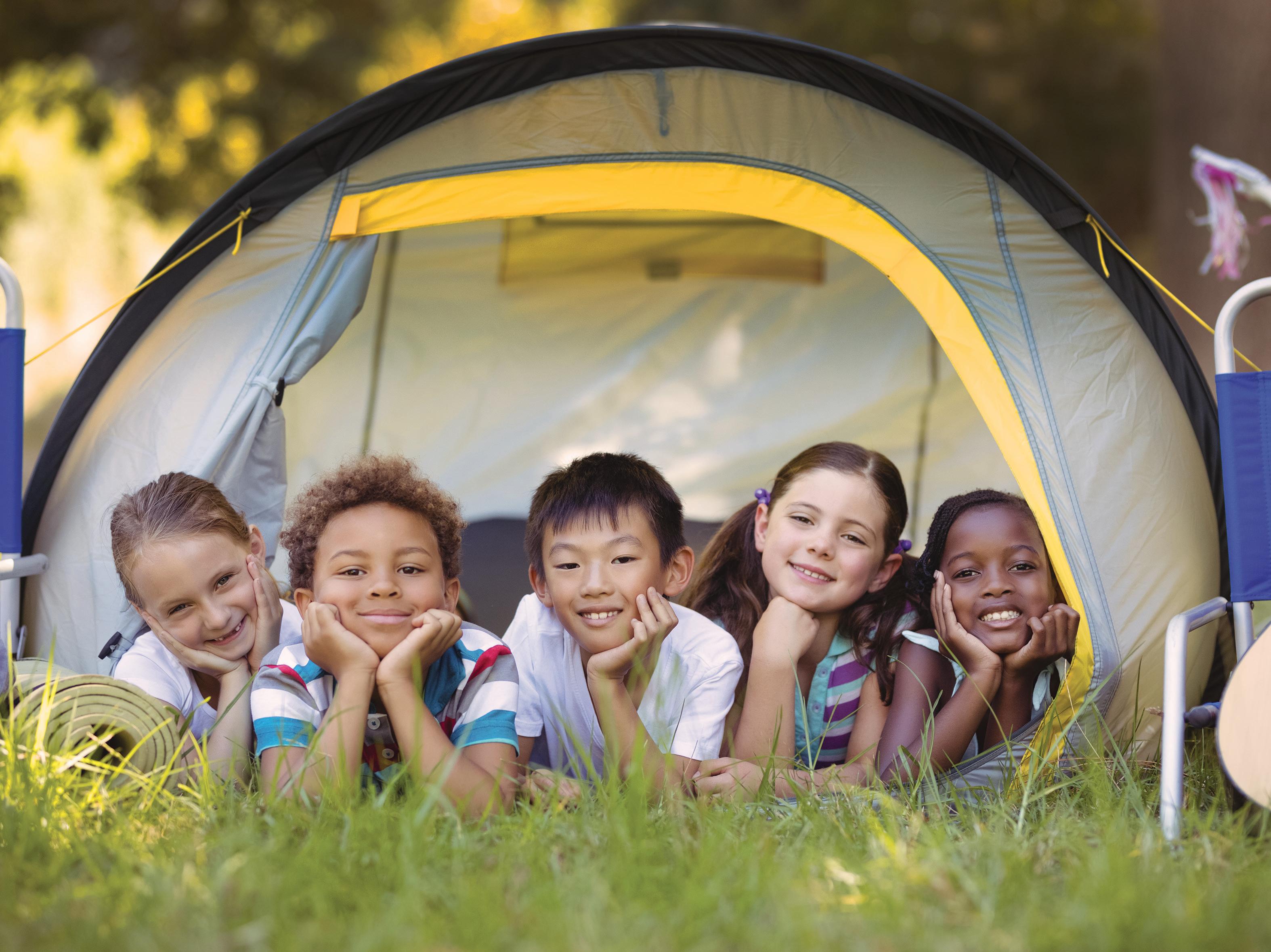
Deciding between day camp or residential (overnight) camp is one piece of the decision for families. Camp is an experience and not limited to a singular location. Campers can develop hard and soft skills, whether sleeping away from home or returning to their own beds each night. While there are differences between day and residential camps, above all else, the most important outcome of this decision is finding the right fit for your camper and family.
This begins with knowing your camper. Many overnight camps begin taking campers between ages 7 to 9. However, some children may be ready at 6, while others may not be ready at 10. While there is no clear, linear checklist to determine whether day or overnight camp is right for your child, the questions listed here can help guide that conversation.
These questions help begin a dialogue with your family about which camp best fits you. The choice of day versus residential camp is a crucial aspect of the overall decision. But even then, make sure you follow up with those potential camps. Talk to directors. Ask for tours. Ask for references. Do your due diligence. In the end, both you and the camp want this summer to be the first of many and the beginning of a great relationship.
• What is the primary reason for wanting to go to camp?
• Has your child ever spent multiple nights sleeping away from home?
• What’s your budget for camp?
• Can your child bathe and dress independently?
• How far away from home do you want your child’s camp experience to be?
• What activities are important to your camper’s experience?
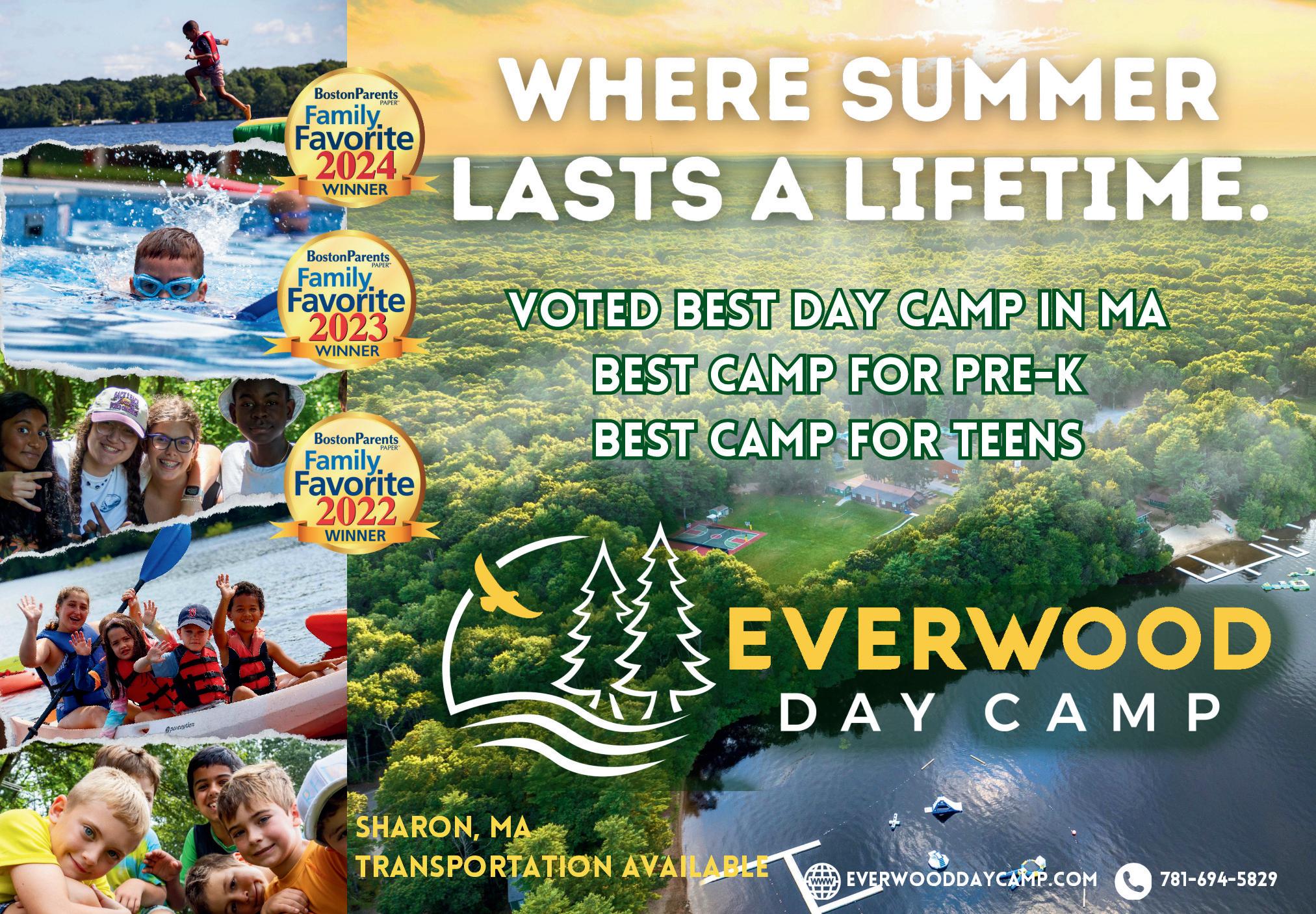
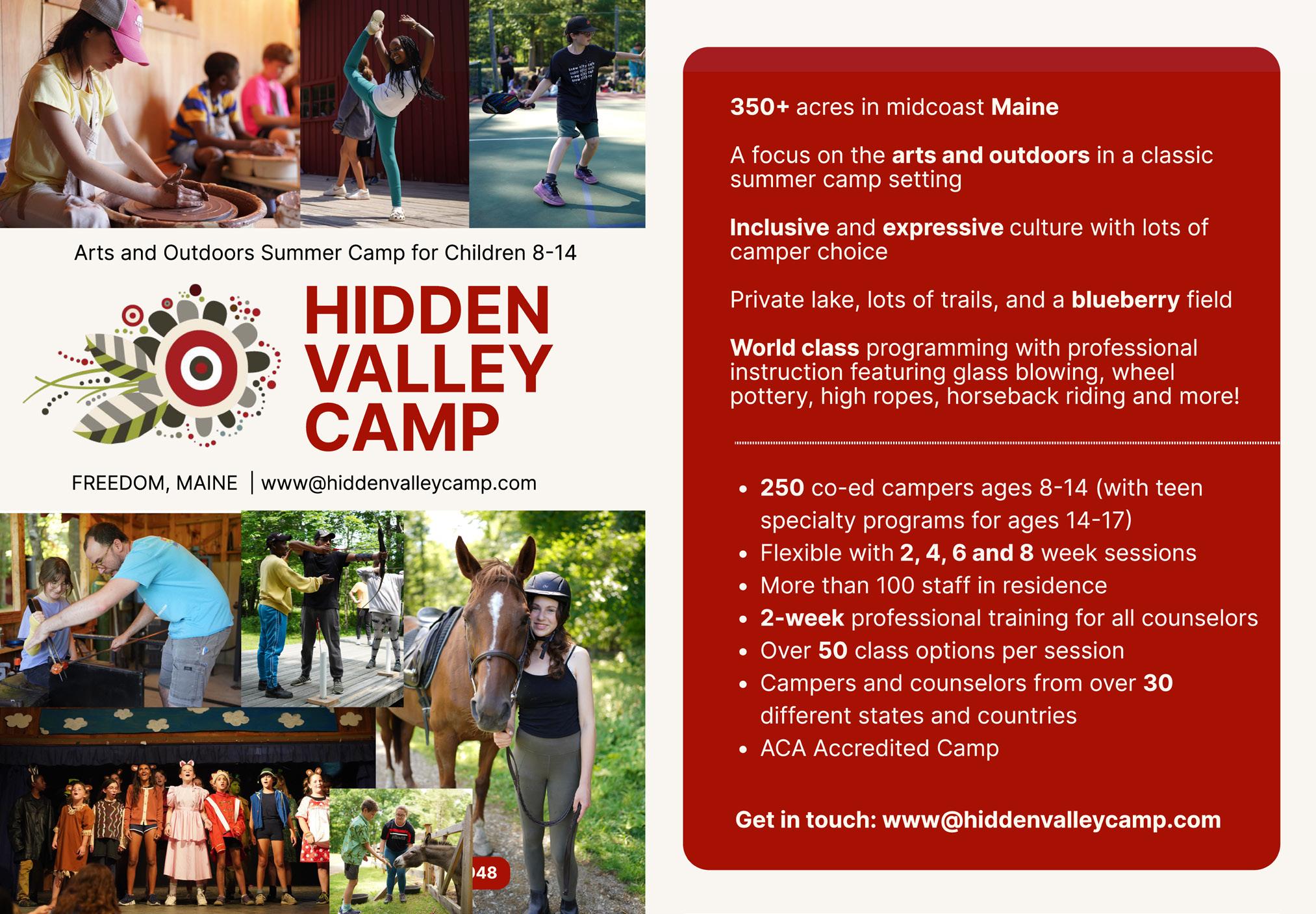

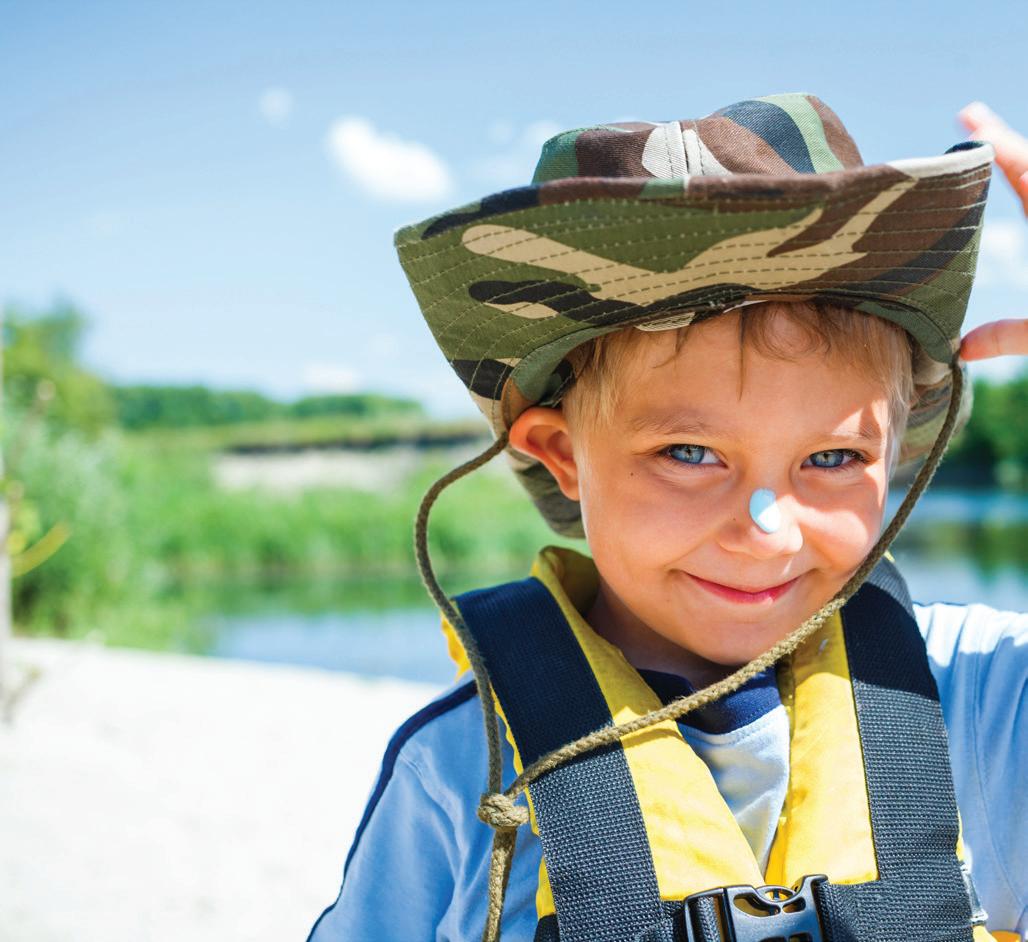
Your Child’s Best summer ever starts here

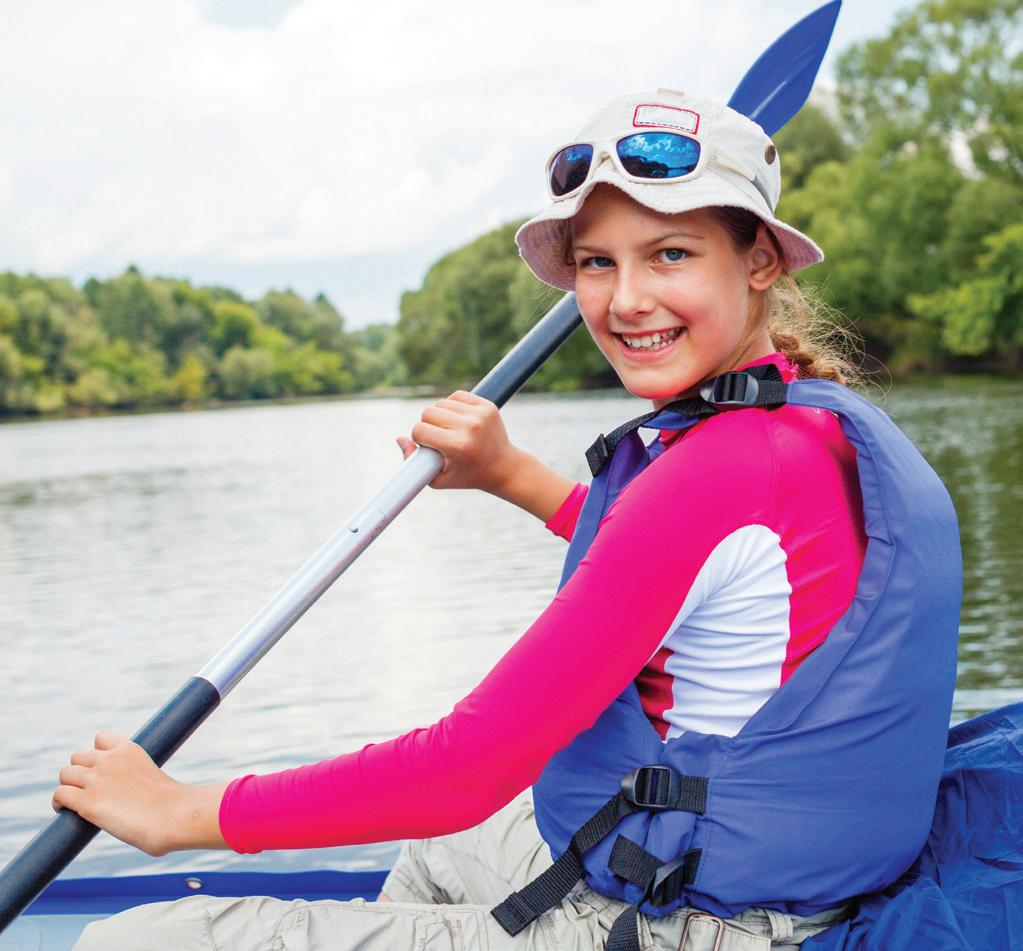
Day Camp & Programs
781-291-3131
Ages 6-17
iCode of Wellesley is a premier STEAM afterschool and summer camp program that teaches life skills alongside a diverse set of technologies. Using these fun and engaging activities we help children build resilience, problem solving, and team work
Cybersecurity, Virtual Reality, Digital Art, Animations, Drones, Robotics and a lot more! Programs run from 9am — 4pm and are appropriate for all kids ages 5 through 18.
We ensure time away from computers with outside activities to keep kids energized, including a chance to be physically active when the weather cooperates. Each week has new challenges
Latest technologies and current topics
School safe snacks
Project showcase on Fridays and reward for the week ��
Outside activities, time away from screens
Challenges and prizes https://icodeschool.com/wellesley107/ camps/
Day Program
781-943-3944
Ages 4+
Bach to Rock music camps give students the chance to unleash their inner rock star - even if they’ve never been exposed to instruments before! We offer summer music camps for ages 4+ (younger group) and ages 7+ (older groups).
Rock Band music camp is for ages 7+. Rock Band campers form a band together, record a song in our studio, and practice playing an instrument within a camp group to perform at the end of the week.
Rock City music camp is for ages 4-6. Rock City campers are exposed to different instruments and will learn how
they work. They also play musical games centered around rhythm and movement.
Glee music camp is for ages 7+. Our singing camps give students the chance to learn how to sing as part of a larger group. Best of all, campers get to record in our studio, make friends with other singers, and have a blast performing at the end of the week!
Camps sessions run weekly, between June 30th - August 29th 2025.
https://www.bachtorock.com/wellesley/ music-camps/
Day Program
617-747-2760
Ages 9-12
At Berklee, we believe that the arts better the lives of everyone. That’s why we offer the ABLE Day Sessions program for musicians with disabilities. Study your instrument in group lessons. Play or sing with other musicians in an ensemble. Experience music through drumming, singing, and music technology workshops. Learn from other musicians in clinics. Share your music in a performance with your ensemble at the end of the week.
http://college.berklee.edu/BIAAE/ programs/day-sessions-able
Day Camp
617-456-6333
Ages 3-16
Ignite your child’s passion for dance this summer at Boston Ballet School! Whether they’re taking their first steps into the world of dance or gearing up for the next level of training, our summer programs provide the perfect opportunity to grow, refine their technique, and explore new styles of movement.
In a fun, energetic, and supportive environment, our expert faculty guide students ages 3-17* through an exciting
dance experience. From classical ballet to dynamic new genres, your child will develop their skills, spark their creativity, and unleash their imagination! https://www.bostonballet.org/
(BOSTON ) Summer Program, Pre-College 617-585-0105
For over 50 years, the BAC’s Summer Academy has provided hands-on design education to high school students. Open to grades 9-12 and ages 14 and up from around the world, the program welcomes aspiring artists, architects, engineers, interior designers, landscape designers, game creators, and more. Students can select from two tracks—Exploration or Investigation— and choose between two enrollment options: the Credit Bearing Option (CBO) or the Not for Credit (NFC) option. The academy requires no prior experience, only a strong passion for design. This summer day program offers a unique opportunity for young creative minds to explore their interests in various design fields and develop valuable skills that will shape their future endeavors.
Boston Architectural College’s (BAC) Summer Academy is designed for high school students interested in architecture, interior design, landscape design, urban planning, and more! Onsite or online, it helps students start designing their future today.
The Summer Academy program, offered onsite and online, empowers participants to work individually and collaboratively in small studios of 8 to 10 students with a dedicated Studio Lead, fostering the development of fundamental Design Skills. Through curated design challenges, students delve into Ideation, Iteration, Sketching, Drawing, Digital Design, Digital Fabrication, Model Making, and Presentation Skills throughout the Summer Academy program.
On-campus students engage in a studio-like setting, tackling real-world
design challenges with lectures, hands-on feedback from practicing design professionals, design and making exercises, workshops, site visits, digital fabrication, and more. The experience concludes with a final presentation and digital portfolio, with all essential materials, and tools provided on campus. This is a day program, and housing is not provided. Students can choose to participate on-campus as non-resident day students or join the program online.
Online students engage in a virtual studio-like experience via Zoom, addressing real-world design challenges with lectures, individual feedback from practicing design professionals, design exercises, workshops, virtual site visits, digital fabrication, and more. The experience concludes with a digital pin-up and digital portfolio. All essential materials, technology access, and tools are provided in a mailed kit at the beginning of Summer Academy. To fully participate, online students require a Windows or Mac computer with stable, high-speed internet access, and a webcam.
In addition, onsite Summer Academy students can add-on the Urban Design and Planning Pre-College Fellowship. This Fellowship is for high school students who are curious about careers in urban planning and design. This add-on program, available at an additional cost, introduces students to urban planning and design with leading professionals and peers in the Boston area and beyond.
Contact us to learn more! https://the-bac.edu/pre-college/ summer-academy
Overnight Camp
603-859-4525
Age: 6-16
Nestled in the Lakes Region of New Hampshire, Camp Birch Hill offers a fun, elective based program where boys and girls aged 6-16 can participate in over 50 diverse activities of their choice. Each summer they welcome campers to their grounds in New Durham, NH. This traditional, overnight summer camp sits
on a 100 acre piece of private, lakeside land where kids can come for two, four or six weeks of their summer. It is a home away from home where kids have the time of their lives for two, four or six weeks while making lasting friendships and memories.
https://campbirchhill.com
Overnight Camp
603-539-4997
Ages 7-17
At Camp Cody, we believe that carefully tailoring the summer experience to the individual camper creates, on a larger scale, a successful and enjoyable summer for all campers. At our spectacular location, campers develop independence, self-confidence make friends, and have great experiences.
https://campcody.com
Day Camp
781-400-2641
Age: 3.9-18
Child Therapy Boston is a locally owned child and adolescent therapy practice with locations in Sudbury and Needham. Child Therapy Boston offers services including counseling, social, emotional and creative therapy groups and parent support. Our services range from helping kids work on social skills to make friends to managing their emotions, both individually and in groups. Our therapists support kids going through difficult life transitions, struggling with stress and anxiety, and learning important coping skills. Our goal is to help kids live happy, connected, and more fulfilled lives.
While we offer our groups year-round, over the Summer, Child Therapy Boston will be offering 8-week therapy groups for preschool-high schoolers, at our
Needham & Sudbury locations. We are excited to be offering Social Skills Groups to work on making and keeping friends, “Coping Outside the Box” Groups to work on anxiety management and coping skills and “Yes And…”, our therapeutic improv group for social skills and Social Anxiety. Summer is a great time to come work on important social and emotional skills in a fun and supportive environment!
Our Social Skills groups work on skills like making and keeping friends, gaining confidence, joining in, reading social cues, navigating social situations, conversation skills and so much more. “Coping Outside The Box” – our creative and expressive based coping skills group works toward building coping skills with a focus on regulation, anxiety and stress management. We will be using a variety of creative outlets, including but not limited to, music, art, crafts, and mindfulness. Introducing different types of creative and artistic interventions gives participants an opportunity to explore new ways of managing difficult feelings, expressing their thoughts, and supporting themselves emotionally. “Yes And…” is our therapeutic improv group, created to help teens work on social skills and social anxiety in a fun, creative, and engaging way. Improv offers kids and teens an opportunity to engage with others, be flexible, creative, silly, funny, work through insecurities, connect with peers, and gain confidence.
Child Therapy Boston also offers individual counseling and parent support during the Summer and throughout the year. Our approach to therapy is unique, thoughtful, and individualized for the children and teens who we work with. We also focus on including parents in the therapeutic process to help bring about positive change, encourage open communication, and ensure that skills can be applied outside of the therapy setting. We work with kids and teens diagnosed with ADHD, Anxiety, Mood Disorders, Autism, and also kids who are struggling with self-esteem, parent-child relationships, sibling relationships, peer relationships, divorce, grief and loss, bullying, life transitions, and well sibling


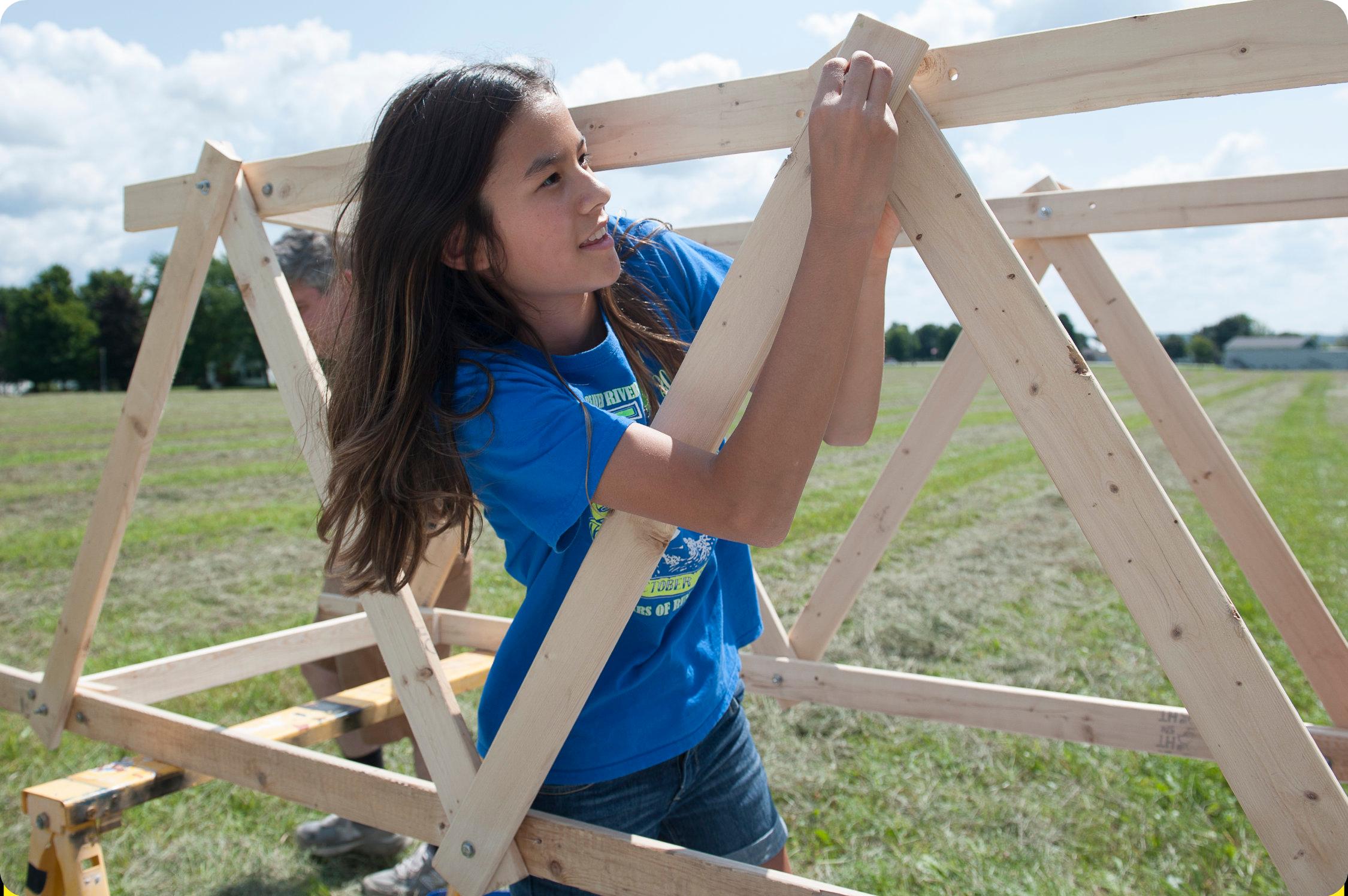













support. We also have therapists who specialize in working with LGBTQIA+ youth.
https://childtherapyinboston.com
Day Camp
781-326-2900
Ages 4-18
Choose between our 3 different camps, The Ultimate Day Camp (7-14 years old), My First Day Camp (4-6 years old) and Tennis Camp (6-18 years old).
The Ultimate Day Camp offers an optional 5-day program that includes theater, sports conditioning, arts & crafts, and lego building! They will choose one of these activities to participate in weekly for one hour. We also have our 2 story ropes course, swimming and sports and more. This camp is perfect for kids who love variety, providing both physical challenges and creative fun. It’s ideal for children who enjoy a mix of adventure, teamwork, and artistic expression, all while gaining new skills in a structured environment!
My First Day Camp is designed for younger children (ages 4-6), offering a gentle introduction to activities like karate, arts & crafts, swimming, and outdoor play. This camp focuses on building confidence and social skills while providing a fun, supportive setting. It’s a great option for little ones who are ready to explore new activities in a nurturing and safe environment.
Tennis Camp focuses on tennis, allowing children to develop their skills through practice and play. In addition to tennis, campers enjoy swimming, which adds variety to their day. This camp is
perfect for kids passionate about tennis or those looking to improve their game, while also enjoying a refreshing break in the pool. It’s great for young athletes who want to hone their skills in a focused, yet fun environment.
Daily swim lessons for the Ultimate and My First Day Camps! Lunch included, and snack for all 3 camps. Extended day options available for additional cost.
https://www.dedhamhealthcamps.com
Day Camp
315-773-5673
Ages 8-17
Whatever skills or abilities your budding scientist or engineer has, we meet them where they are and guide them to the next level. Along the way, they unplug and make new friends! Invite a friend and save with our referral program!
Rising 10th to 12th grade students may apply for our Counselor in Training (CIT) program.
Choose from these individual, weeklong sessions:
• drones and coding instructions to fly them
• microscope adventures
• engineering catapults
• the hydraulics makerspace
• marine studies
• bridge building
• the Super Science Sampler
• space science
• rocketry
• 3D printing and design https://www.edgeonscience.com
Day Camp
781-202-5645
Ages 5-15
Einstein’s Workshop is a womanowned STEAM community center where kids create, explore, and enjoy Science, Technology, Engineering, Art, and Math. We have a not-so-hidden agenda of encouraging girls and people of color to enjoy and excel at STEAM.
We take advantage of whatever kids enjoy to teach them. Using Minecraft as a classroom, kids learn architecture, medieval history, math, programming, circuitry, and more. We teach LEGO robotics to kids as young as five. Older kids learn the robotics skills to join a FIRST LEGO League team or build a Rube Goldberg machine out of Vex robotics.
Artistic kids learn 3D Printing Design and other digital art techniques that use our laser cutter and other advanced tools. We also offer science and programming camps.
We use whatever kids find interesting as a springboard to encourage them to learn STEM skills they’ll need as adults, both professionally and personally. They have so much fun they don’t even realize they’re learning!
https://www.einsteinsworkshop.com
Day Camp
781-694-5829
Ages 4-15
Situated along the glistening shores


of Lake Massapoag in Sharon, MA, Everwood Day Camp offers campers ages 4 to 15 a summer of sports, arts, and outdoor activities, in an environment that’s uniquely suited to encourage their growth. Our dynamic camp program grows with our campers and includes a wide variety of activities to keep every child engaged. Our nurturing staff encourages social and emotional skill development throughout each moment of the day. Our 70-acre dedicated camp facility includes over 40 cabin spaces, lodges, fields, courts and two incredible waterfronts. At Everwood Day Camp, campers experience all the fun and friendship of camp life, plus the support of a community that’s committed to providing skills for life. https://everwooddaycamp.com
Overnight Camp 603-585-7751
Ages 8-15
Fleur de Lis Camp is a classic sleepaway summer camp for girls ages 8 to 15, located on the shores of Laurel Lake in Fitzwilliam, NH. For 95 years, girls have made new friends, developed self-confidence and independence, and tried new things, all while having fun and being a part of a caring community. Joy, Belonging, and Friendship are at the heart of our camp community. In
everything they do, girls can be their truest selves without the pressures, expectations, and technology demands that are often a part of their school year. Come join us to swim and boat on our beautiful lake, get creative in our many art programs, and expand your skills in our extensive land sports program. Try something you haven’t done beforewater skiing, sailing, archery, horse back riding, ceramics, paddleboarding, stained glass and much more. Every day is filled with laughter, connectedness, and personal growth.
https://www.fleurdeliscamp.org
Overnight Camp, Summer Program, Pre-college
781-715-5492
Ages 15-19
High school and college leave substantial gaps in students’ ability to work in teams, lead, communicate, drive their own growth, and perform professionally. Futures Forge helps students develop these skills, equipping them with the skills they need to thrive in their careers and personal lives.
Futures Forge’s immersive, hands-on programs instill adaptability, leadership, Grit and real-world problem-solving abilities. Our curriculum, crafted by serial founders from MIT and Oxford
sets up students to tackle dynamic, project-driven challenges, preparing them to excel in college, internships, and their future careers. Our grads have the skills and confidence to stand out and succeed in a competitive world.
http://www.futuresforge.org
781-326-1770
Campers love to swim, hike, and mountain bike in Hale’s ACA-accredited summer camps, which is why many of them have waitlists as early as October. Routinely named a Family Favorite by Boston Parents, Hale boasts 1,200+ acres in Westwood and Dover that feature 20 miles of trails, three ropes courses, four ponds, expansive beaches, and a private MTB skills park. Ages 4+ enjoy classic camp activities that include boating, archery, and field games, and older campers pursue their passion for mountain biking and hiking on multiday excursions in the Berkshires and White Mountains. Leadership development programs are available for teens. Free bus transportation is included.
Conveniently located just minutes from Rte. 128, it’s easy to see why kids call Hale “the best camp ever,” and why so many young families make its programs part of their summer routines. https://hale.education/programs/type/ summer-camps/

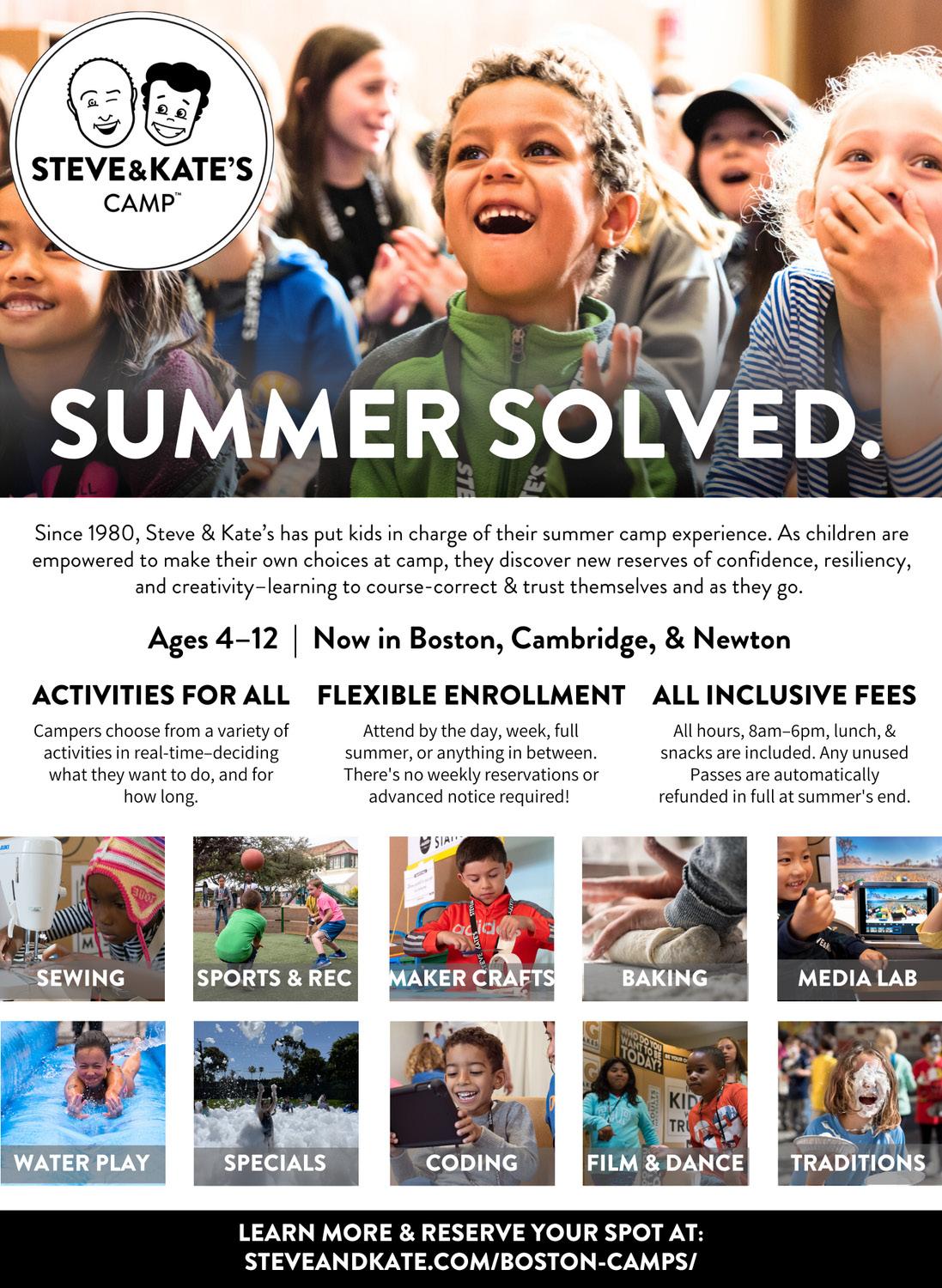
Overnight Camp
207-342-5177
Ages 8-14
Campers from all over the world choose from 50+ distinctive, professionally-led activities spanning the visual and performing arts, water and land sports, horseback riding, culinary arts, nature and adventure. Located on a private lake in mid-coast Maine, HVC has fostered community ideals in a lively, inclusive setting since 1948.
Hidden Valley Camp is an overnight arts and outdoors summer camp in beautiful Maine. HVC offers 4-week, 8-week, and 2-week “intro” sessions for girls and boys ages 8-14.
Expansive location on 350+ acres in mid-coast Maine with a private lake, lots of trails, llamas, horses, sports fields, and more
Expressive, inclusive atmosphere
World class arts and outdoors programming with professional instruction and choices like glass blowing, ceramics, high ropes, and kayaking
Balance of structure and freedom with lots of choice. https://hiddenvalleycamp.com
Summer Programs
207-867-6050
Ages 11-18
Established in 2009, the Hurricane Island Center for Science & Leadership delivers STEM (Science, Technology, Engineering, Mathematics) experiential education programs lasting 2-10 days for youth ages 11- 18.
We inspire individuals to become impassioned change leaders and informed citizens in confronting current and future environmental challenges. Our research agenda focuses on answering local high priority questions and increasing scientific capacity regionally. We pursue initiatives that increase our knowledge through the scientific process, and the knowledge gained then
informs communities and empowers people to take action.
Our summer science programs for middle and high school students are packed with hands-on activities that help students to think, observe, and ask questions like scientists, develop leadership skills, immerse themselves in the natural history and ecology unique to the island, and connect and learn from their peers, forming friendships and sharing laughs both while they learn and relax on Hurricane Island. And there’s all the fun you’d expect being on an island in Maine.
https://www.hurricaneisland.net
Day Camp
617-583-9250
Ages 3-10
The International School of Boston gives your children a safe and fun day camp experience that they will never forget. Under the guidance of bilingual teachers, campers participate in academic, creative, and playful activities.
The camp is open to all children ages 3 to 10, and runs from 8:30am to 3:30pm. Previous exposure to French and English languages is not required.
Our fun activities provide opportunities to make new friends: arts and crafts, bilingual activities, drama, games, outdoor fun, reading, sports and writing.
https://www.isbos.org/community/ summercamp
Summer Programs
617-965-0764
Grades 10-22
The LPS Summer Program is designed to maintain progress and prevent regression through structured languagebased academics, social experiences and weekly field trips.
Complex learning profiles of our students involve a primary language-based
deficit such as a specific learning disability in reading/writing or a language disorder. Secondary diagnoses may include ADHD, anxiety or Autism (Level 1).
Language-based program to prevent regression.
https://www.learningprep.org
Day Camp
781-235-3210
Ages 3-15
IMAGINE a summer at LINX Camps filled with new experiences, favorite activities, friends, and endless fun.
LINX Camps proudly offers the greater Boston area a premier summer day camp experience for kids ages 3 – 15. Our fun-filled, exciting, and innovative divisions — junior (half and full day), general, adventure, performing arts, sports, and STEAM — are rich with choices and grounded in traditions. Our enthusiastic and attentive team, led by industry experts, recognizes each camper’s strengths. They support the growth of younger campers and build character in older ones.
Our campus at the Dana Hall School in Wellesley offers campers the very best amenities for their camp experience: outdoor field spaces, tennis courts, state-of-the-art athletic building, indoor pool, climbing wall, classrooms, and a dining hall.
https://www.linxcamps.com/
Overnight Camp
603-899-5589
Ages 10-17
Mass Audubon’s Wildwood Camp is the place to be for kids who love to be in nature – explore the woods, kayak in the lake, zipline through the trees and make memories with friends who love the great outdoors as much as you do. This summer, the beautiful, secluded Rindge campus will host six weeks of residential sleepaway camp for campers ages 10-13 and Counselors-in-Training (ages 16-17), plus Family Camp programs for
Activities to include:
• Waterpark
• Ropes Course
• Swim Lessons
• Lunch & Snack included
Weekly camps o ered June 9th - August 29th
The more weeks you book, the more you save!
Campers 7-14 have a weekly choice of special activity including Arts & Crafts
Summer Is better at Camp!

Sports Conditioning, Lego building, and Theater?Drama
Check out our camps today!



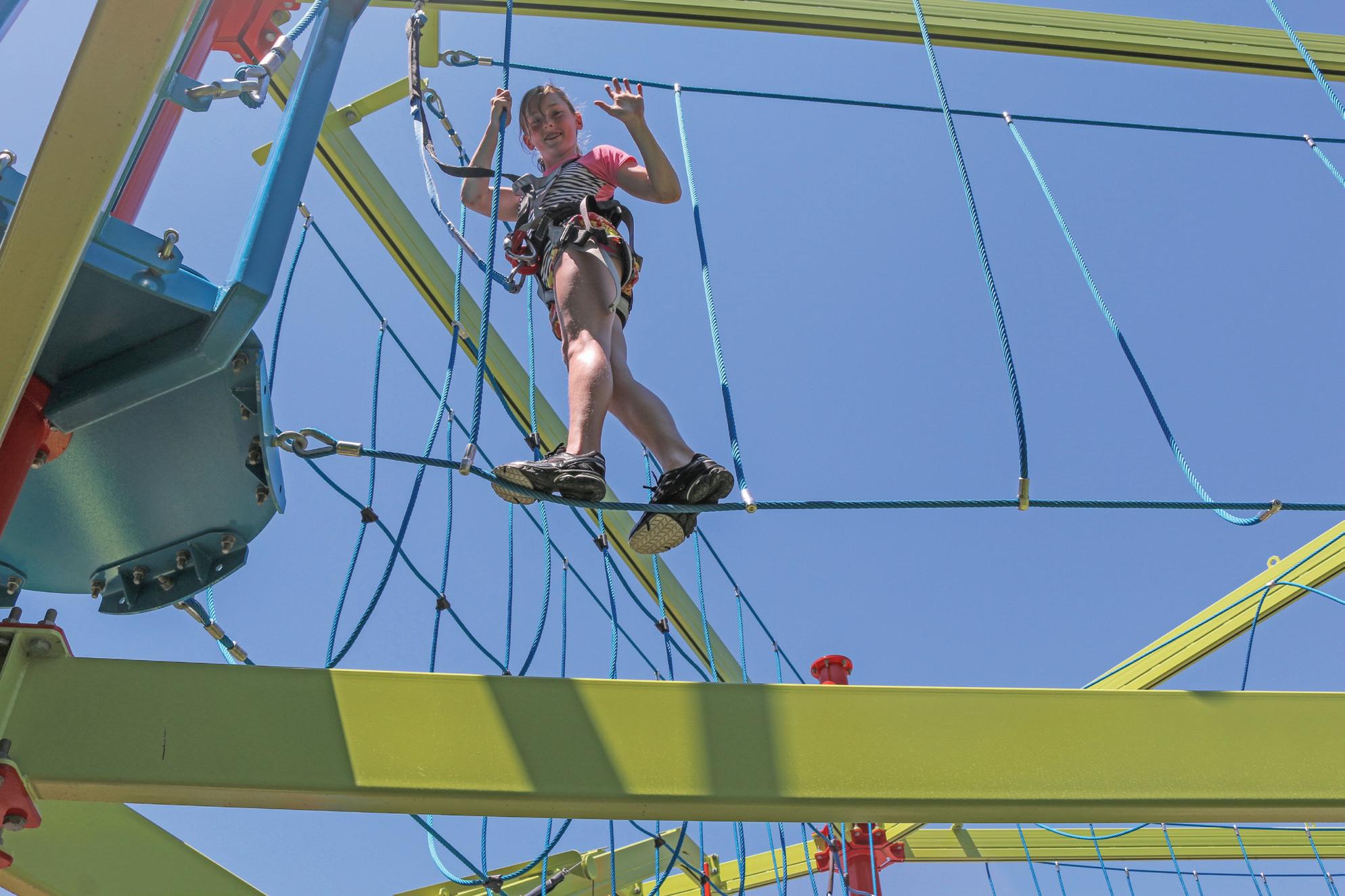
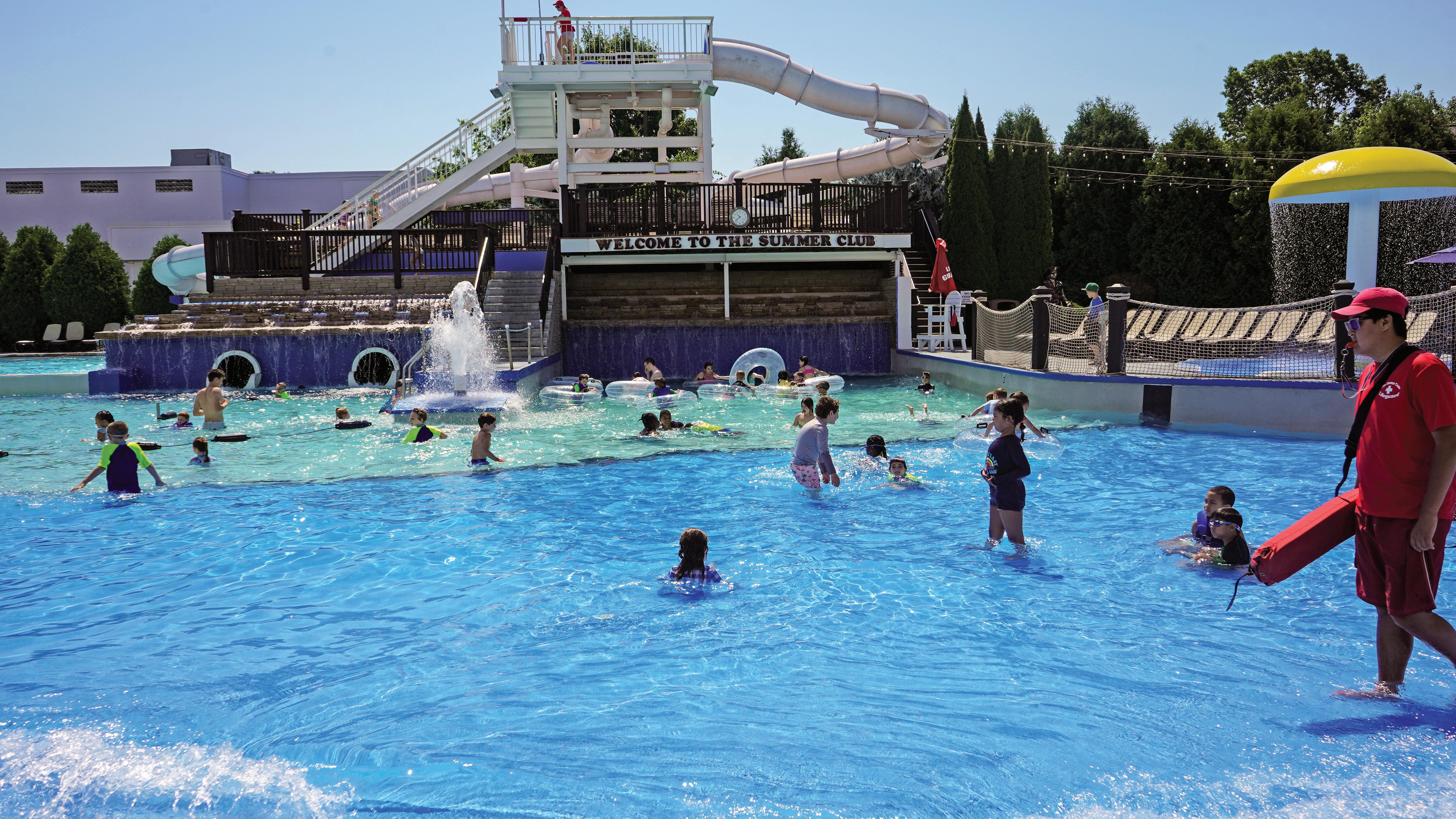

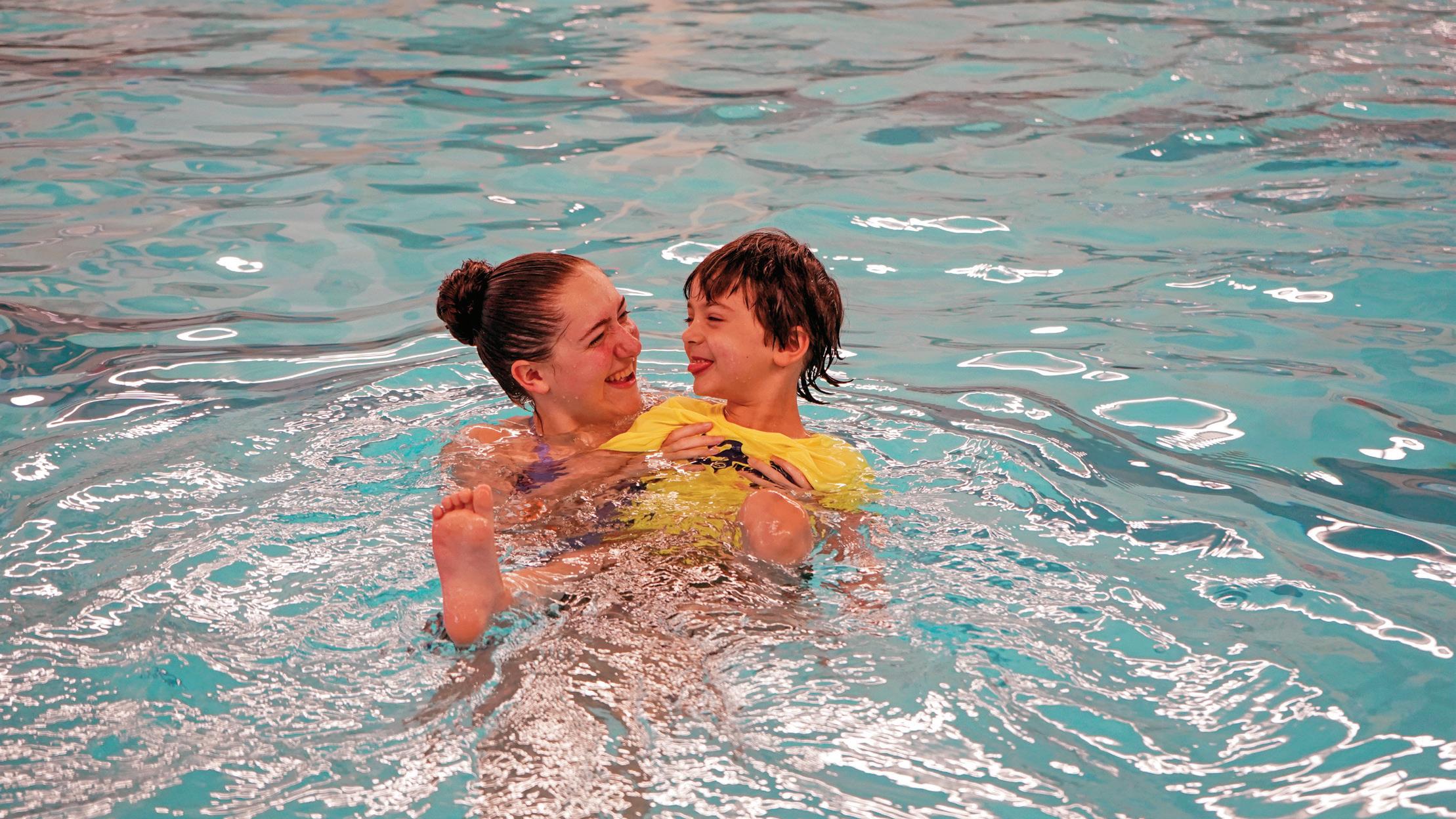
campers of all ages. Campers have fun as they explore the outdoors, make friends, and develop self-confidence and leadership skills that last a lifetime.
In addition to the Rindge overnight programs, Wildwood also offers incredible Teen Adventure Trips for ages 13-17. These week-long, off-campus overnights immerse campers in the natural wonders of the Northeast’s most beautiful areas, from backpacking portions of the Appalachian Trail to biking the stunning beaches of Cape Cod to kayaking off the rugged coast of Maine. https://www.massaudubon.org/
Day Camp
Ages 8-15
Montserrat College of Art in Beverly hosts four, one-week sessions of its Youth S.T.E.A.M. Arts Academy for students age 8-15, broken into age groups of 8-11 (minors) and 12-15 (majors). The program is fun and challenging. Students may take one, two or three classes per day allowing them to experience exciting creative endeavors while being introduced to a variety of techniques and skills.
Weekly camps run from July 7, 2025 –August 1, 2025.
https://www.montserrat.edu/academics/ summer-programs/youth-programs/
Day Camp
781-235-8765
Ages 3-15
Set in Nature. Rooted in Wonder. Bursting with Fun!
NEOC connects campers age 3 – 15, to nature with activities that spark their excitement, curiosity, and individuality!
Our campus, on the Elm Bank Reservation in Wellesley, is an expansive property with river-access, trails, forested areas, gardens, and the opportunity for campfires. Our activities include
archery, arts & crafts, canoeing, cooking, conservation, games, gardening, hiking, orienteering, outdoor survival skills, shelter building, sports, and wellness. As campers range from ages 3 – 15, all activities are carefully tailored to be age appropriate. Choice is a keystone of the NEOC experience and the program champions the development of independence by offering choice activities each afternoon. One very special and unique aspect of NEOC is its multi-age play and mentoring, which is well-supported by the inclusive and intimate camp culture. As campers grow at NEOC, they are encouraged to wonder about, investigate, and build their understanding of nature.
https://www.campneoc.com
Day Camp & Summer Programs
617-484-4696
Ages vary by camp
We know summer is a challenge for many families – trying to fit in vacations, activities, learning, and relaxation is no small task! How do you keep your young musician motivated when there’s so much going on?
Now Powers offers 6 unique summer day programs for students interested in a 1-week or 2-week immersive experience. What do we mean by “immersive?” Most of our day programs run from 9:00 am to 3:00 or 4:00 pm, so your child will get a full schedule of music, ensembles, art, recreation, special master classes, and unique learning opportunities not available during the school year.
Kids interested in music, singing, theatre, or instruments can start in our popular Kids Crescendo program or Opera Kids. Ages 8-12 who are new to music or interested in trying different instruments can choose Sound Safari. Suzuki violin students will have fun continuing their studies with their friends at Suzuki on the Hill. String and plucked string players will love improvising at String Traditions. Intermediate and advanced students can build their solo and ensemble skills even further at
Music on the Hill.
It’s a chance for them to surround themselves with music all day – and new friends who are experiencing and learning everything right alongside them. It’s an opportunity to practice and perform in a more relaxed setting. It’s a time for them to experiment and really test the limits of what they can do.
2025 Program Dates:
Sound Safari (ages 8-12): August 4 - 8
Opera Kids (rising 3rd - 6th graders): August 11 - 15
Kids Crescendo (ages 5-12): June 30July 11 (Session 1); July 14–25 (Session 2); July 28 - August 1 (Session 3)
String Traditions (ages 9-14): July 28 - August 1
Music on the Hill (ages 8-18, audition required): June 30 – July 11 (Session 1); July 14–18 (Session 2)
Suzuki on the Hill (Suzuki violin students ages 5-15): July 21 - 25 https://powersmusic.org/ summer-day-programs/
Day & Overnight Camp
508-888-0489 x206
Ages 11-22
Riverview’s Summer Program is an ideal opportunity for students with complex language & learning challenges to maintain academics, improve independent living & executive functioning skills while enjoying social opportunities with peers on Cape Cod.
Summer at Riverview offers programs for three different age groups: Middle School, ages 11-15; High School, ages 14-19; and the Transition Program, GROW (Getting Ready for the Outside World) which serves ages 17-21.
Academic instruction is provided each weekday morning using a thematic, integrated curriculum. Reading, writing and the arts are connected to a central theme, which provides a meaningful, multi-sensory learning environment. Students also receive instruction in mathematics and participate in elective
classes to explore new interests. Riverview Summer is about adventures and having fun! Students experience summer on Cape Cod by attending sporting events, dances, whale watching, beach outings, water parks, kayaking, deep sea fishing and cultural events, such as concerts and plays—teenage experiences!
Social skills training is one of the corner stones of the Riverview program. All activities are designed to strengthen cooperative skills and individual growth. Outings allow for skills learned in the classroom to be practiced across all settings and environments within the community.
Students learn how to plan their time, complete chores to take care of their rooms as well as common living spaces, and budget their money to make purchases in the community. They also learn how to self-advocate and learn executive functioning skills. https://www.riverviewschool.org/
Day & Overnight Camp
617-245-0410
Ages 4-12
Campers (ages 4-12) choose minute to minute from a variety of activities including, sewing, stop-motion animation, music, performing arts, makers crafts, bread making, and more. They’ll decide what they want to do, and for how long–developing confidence and learning to trust their judgment along the way.
Open at 2 Locations This Summer! https://steveandkatescamp.com
Day Camp
508-655-7333
Ages 2-9
Our programs, Summer at Riverbend, Adventure Program, and Ready to Rise all help children gain friendships, developmental skills, and set students up for success while having fun!
Summer @ Riverbend– This program is for children 2 years old through rising Kindergarteners. Toddlers and young children will enjoy a variety of agespecific activities including water play, sports, arts and crafts, and music time while creating new friendships!
Adventure Program– This program is for rising first through fifth graders. Our elementary aged children have more independence while they play a wide range of games and sports; hike to Elm Bank and the Natick Waterfall; and go on field trips!
Ready to Rise Ready Program- After a successful 2024 summer at Riverbend, we are excited for the return of Ready to Rise! Ready to Rise is a 4 week summer program for rising first and second graders. The program identifies a small number of key literacy foundation skills that set students up for a successful school year.
https://riverbendschool.org/ our-programs/summer-riverbend/
401-253-3004
Ages 15-18
Explore engaging summer camps in beautiful Bristol, Rhode Island. If you are a motivated high school student looking for a pre-college opportunity, look no further than Summer@Roger! Experience life on RWU’s beautiful Bristol campus and engage in dynamic, hands-on summer programs. Pursue your academic interests, build connections, and develop skills to support strong college applications while working along top scholars in the field. Discover which program is right for you! Roger Williams University offers a robust selection of overnight summer camp opportunities that will amaze and delight your college-bound student. 2025 camps include Food Science, Forensic Science, Entrepreneurship, Marine Biology, and Architecture. https://www.rwu.edu/summer-camps

Day Camp
508-291-8342
Ages 6-15
We welcome you to join us at Tabor Summer Camp in a tradition of learning and playing on Tabor’s unique seaside campus. By choosing from our FUN and engaging activities you will create an unforgettable summer. Day programs are available for children ages 6-15.
At Tabor Summer Camp you will enjoy the company of people from all over the US and the world. You will learn new skills, appreciate new activities, and discover new aspects of yourself. A supportive staff will encourage you to explore, grow, and challenge yourself throughout summer. By the program’s end, you may have made a new friend from another country, mastered sailing, or simply learned to love being part of a community. The offerings of the Tabor Summer Camp will captivate your imagination.
A summer of friends, new experiences, and learning awaits you on the shores of Sippican Harbor.
http://taborsummer.org/
Overnight Camp Summer Program
617-209-9877
Grades 6-12
The United Nations Association of Greater Boston’s Summer Institute in Global Leadership offers week-long Model UN programs for students from all over the world to work together and address global issues. Throughout each week, students will:
• Learn about the week’s thematic topic from our stellar staff and interns
• Participate in public speaking and negotiation activities
• Learn from expert guest speakers
• Make friends and work together collaboratively on complex global issues
• Step into the role of a diplomat during Model UN simulations
Our week-long programs run in June, July, and August. If you have a greater appetite for global issues, you can even attend multiple weeks, as each program’s content is unique. Programs run 9am-3pm ET (this is a day program only).
What is Model UN?
In Model UN, participants learn about a global issue and are assigned to represent a specific country. In a simulation that mirrors a UN committee session, students (or delegates, as we refer to them!) give speeches, engage in formal debate, collaborate and negotiate ideas, draft solutions (referred to in Model UN as “resolutions”), and vote. Using parliamentary procedure to structure debate (just like the real UN!), students have the opportunity to build skills for life and leadership while learning about a complex global issue.
https://unagb.org/model-un/ vacation-institutes/
YMCA CAMP FRANK A. DAY (EAST BROOKFIELD) Overnight Camp
617-795-0931
Ages 7-15
YMCA Camp Frank A. Day, or “CFAD” as many campers and alum call it, is a coed summer overnight camp west of Boston in beautiful East Brookfield, MA. Summer after summer, Camp Frank A. Day campers bond as a community
as they learn how to be more independent and how to contribute to a group. Through physical, social, and educational activities, our campers gain self-reliance, a love for nature and the outdoors, and the development of attitudes and practices that build character and leadership—all amidst the fun of campfires, bugle calls, canoeing, soccer matches, archery and talent shows. https://www.wsymca.org/camps/ frank-a-day
Day Camps
617-927-8060
Ages 5-13
At the Y, we take a whole-child approach, and round out their summer experience with invigorating sports and swimming instruction that promotes physical well-being, exploration of the community which fosters social and emotional growth, while seamlessly weaving literacy, math, and science lessons into our curriculum. Kids can’t help but develop life-long love of learning and friendship at our camps and benefit from reduced summer learning loss.
Get ready for Y Summer Day Camps where kids can be kids and enjoy the great outdoors with swimming, field games, arts and crafts, group activities, field trips and other exciting events offered throughout the summer.
https://ymcaboston.org/ youth-and-family/camps/day-camps/
